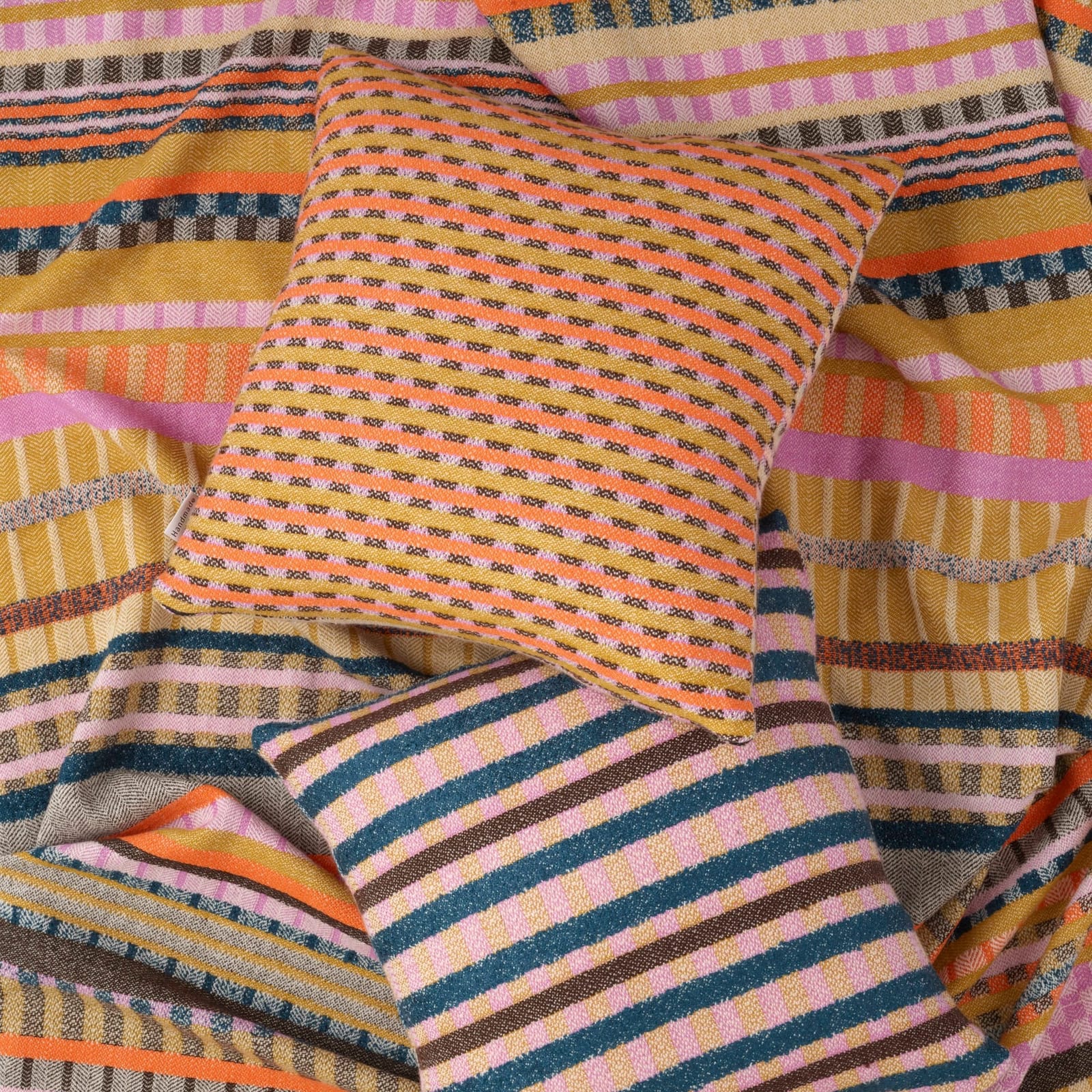An arts and ideas place with a rich history in East Sussex, England, Charleston, hosts a well-established and popular fair featuring a curated selection of designers and makers in their creative community.
Contributor to THE KINDCRAFT Fiona Coleman visited the Charleston fair November 23rd and 24th, 2024 and selected five favorite sustainable textile brands. She focuses on brands using low-waste production practices and designers that are ethical or are charity-based endeavors.
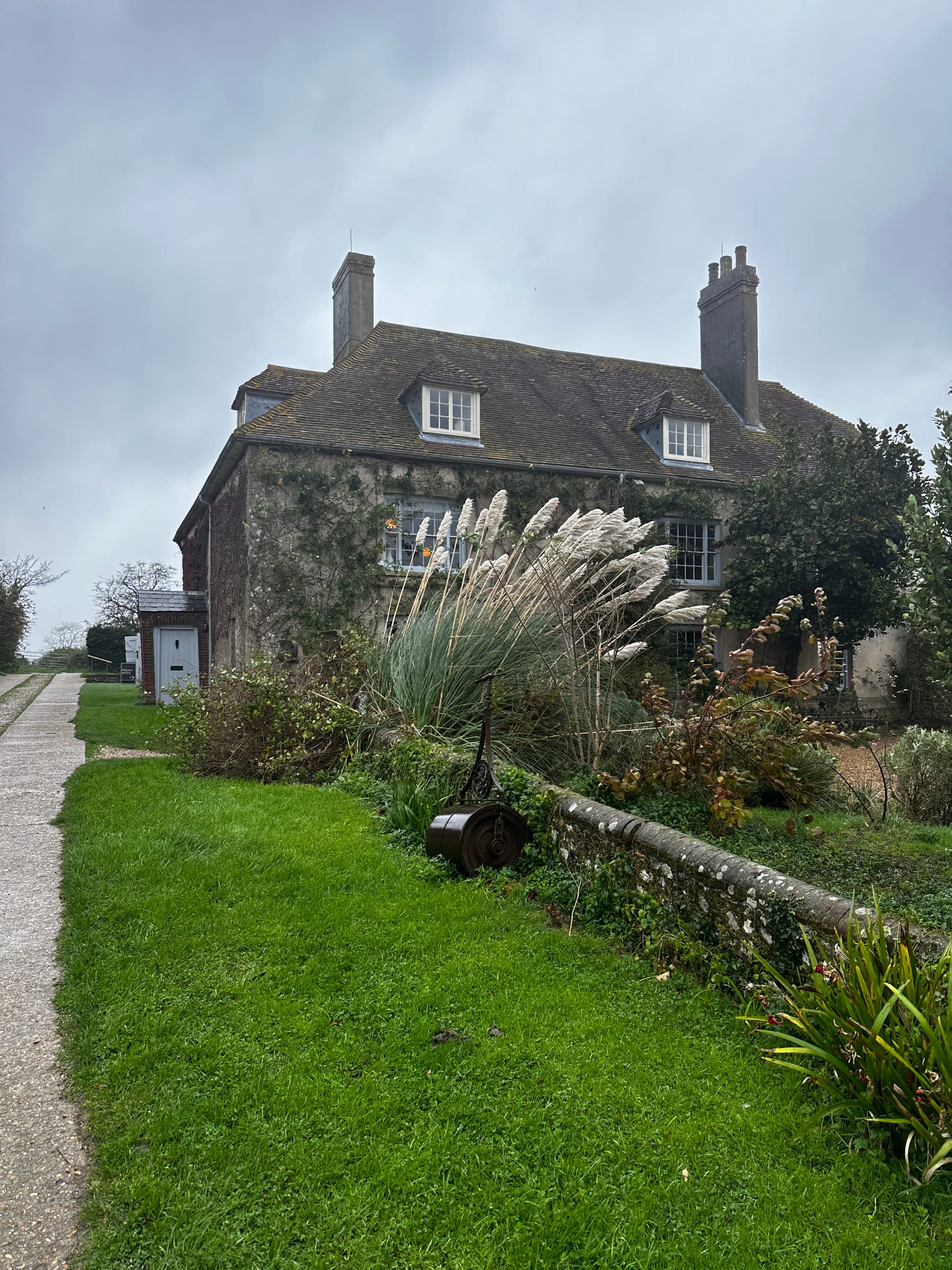
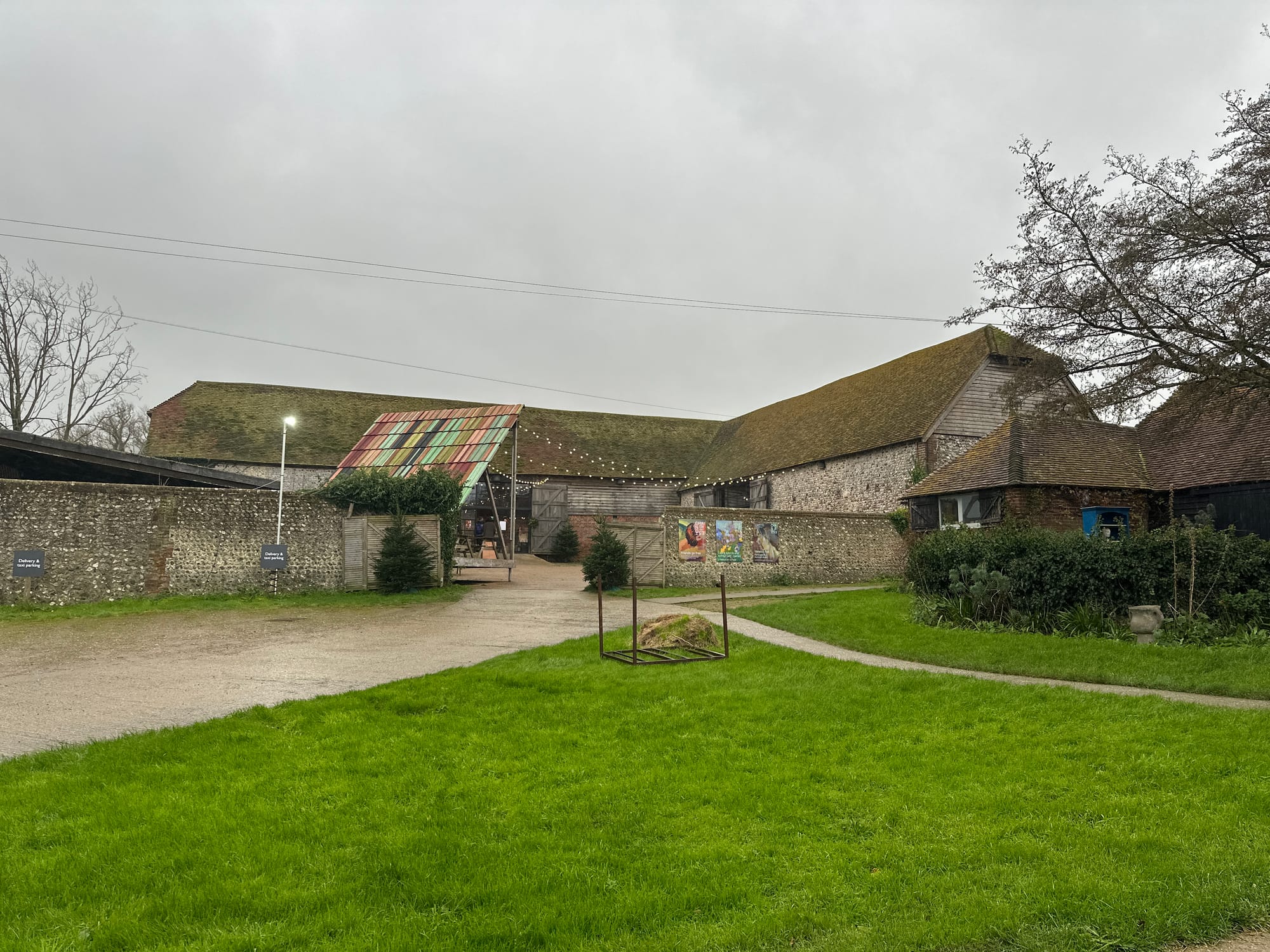
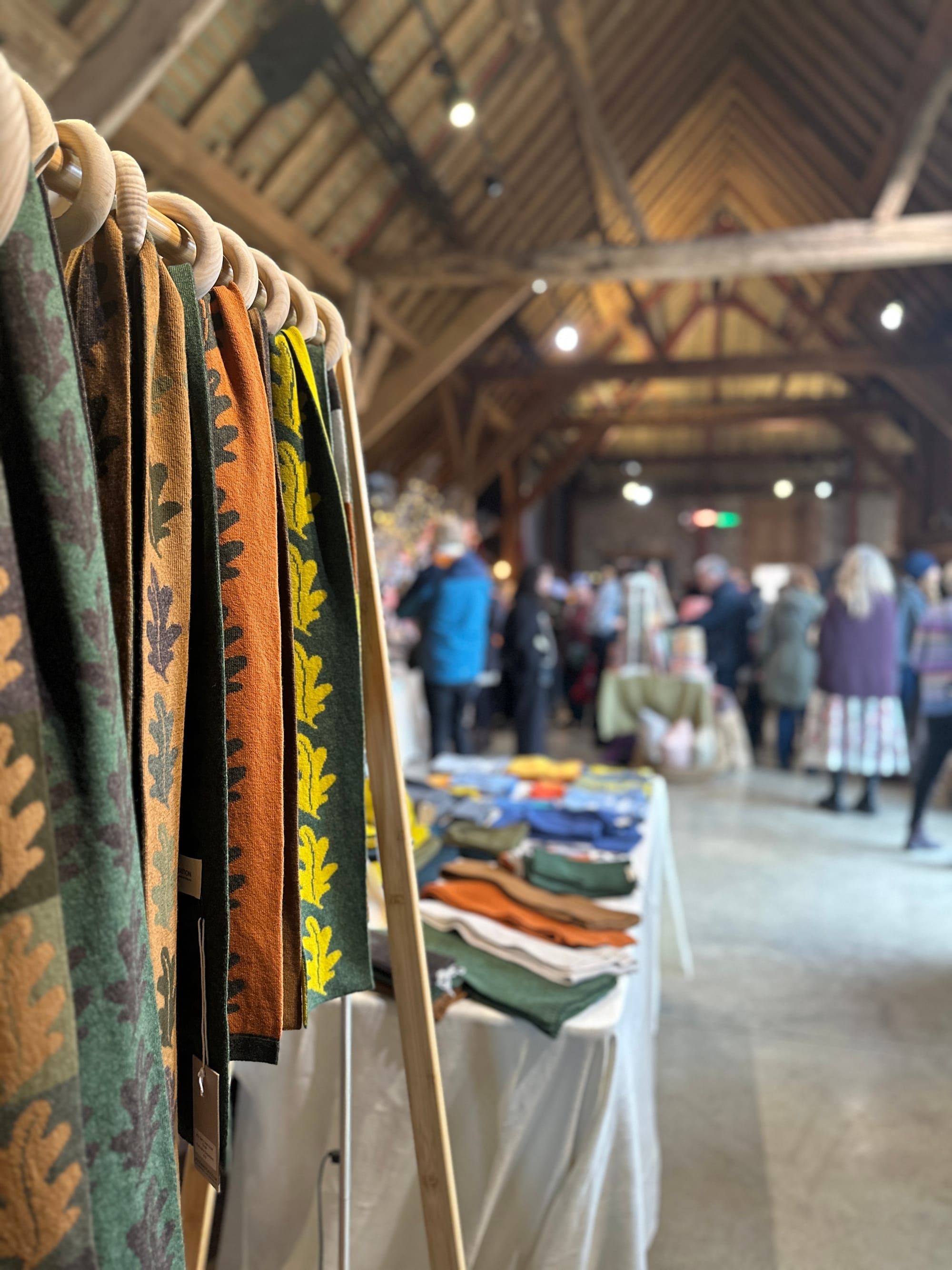
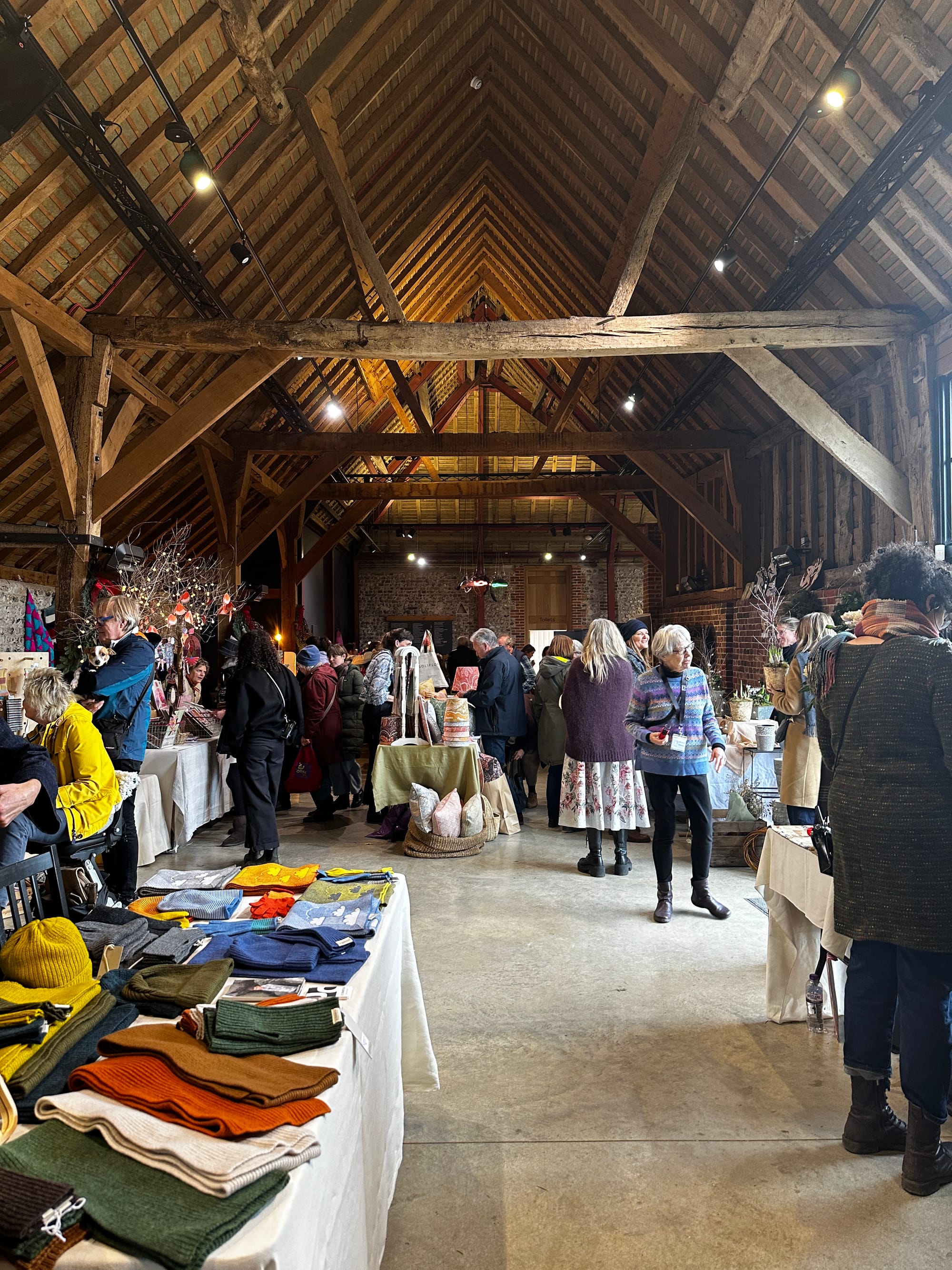
Photos by Fiona Coleman
Anart.Cuirm
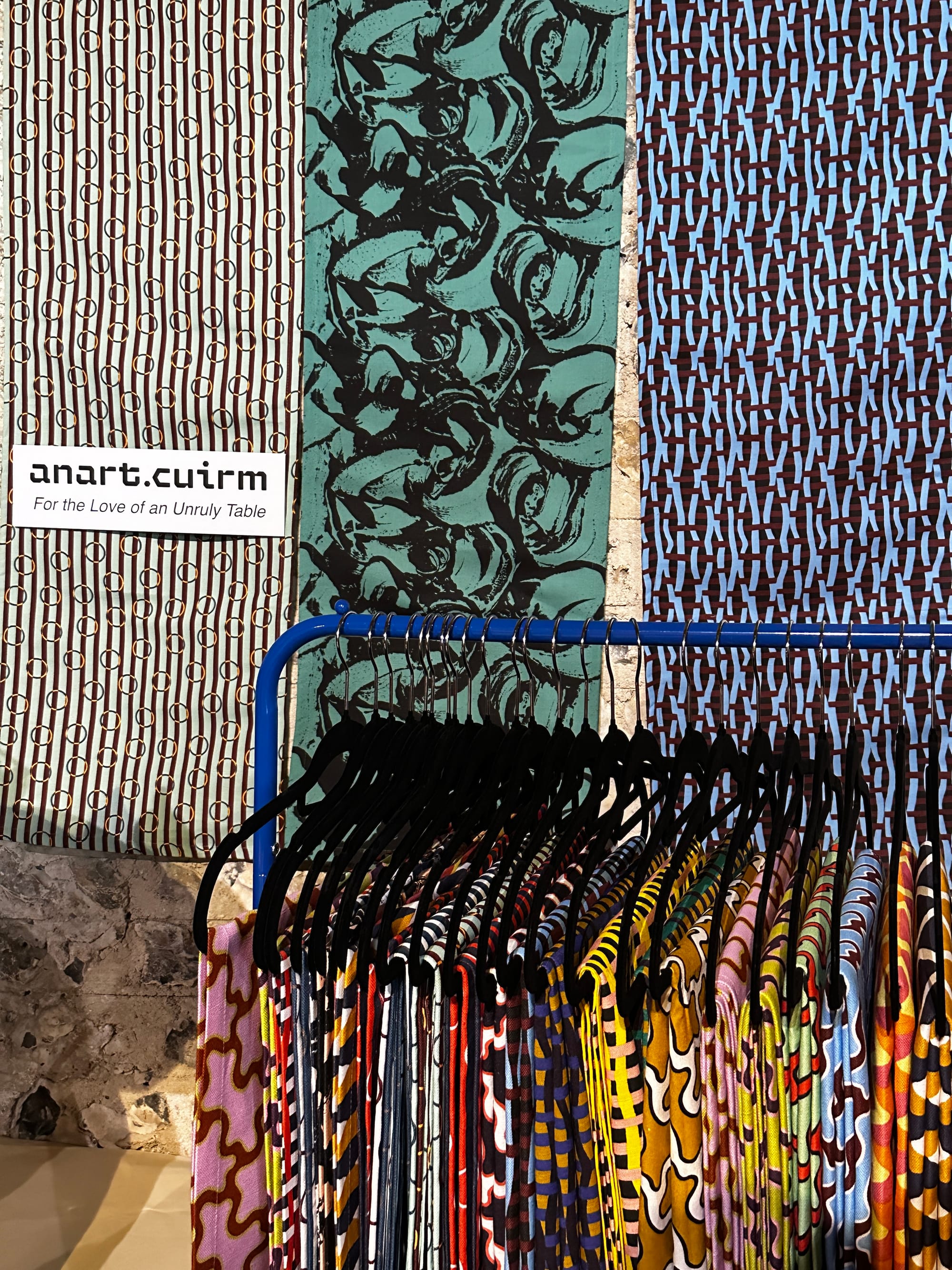
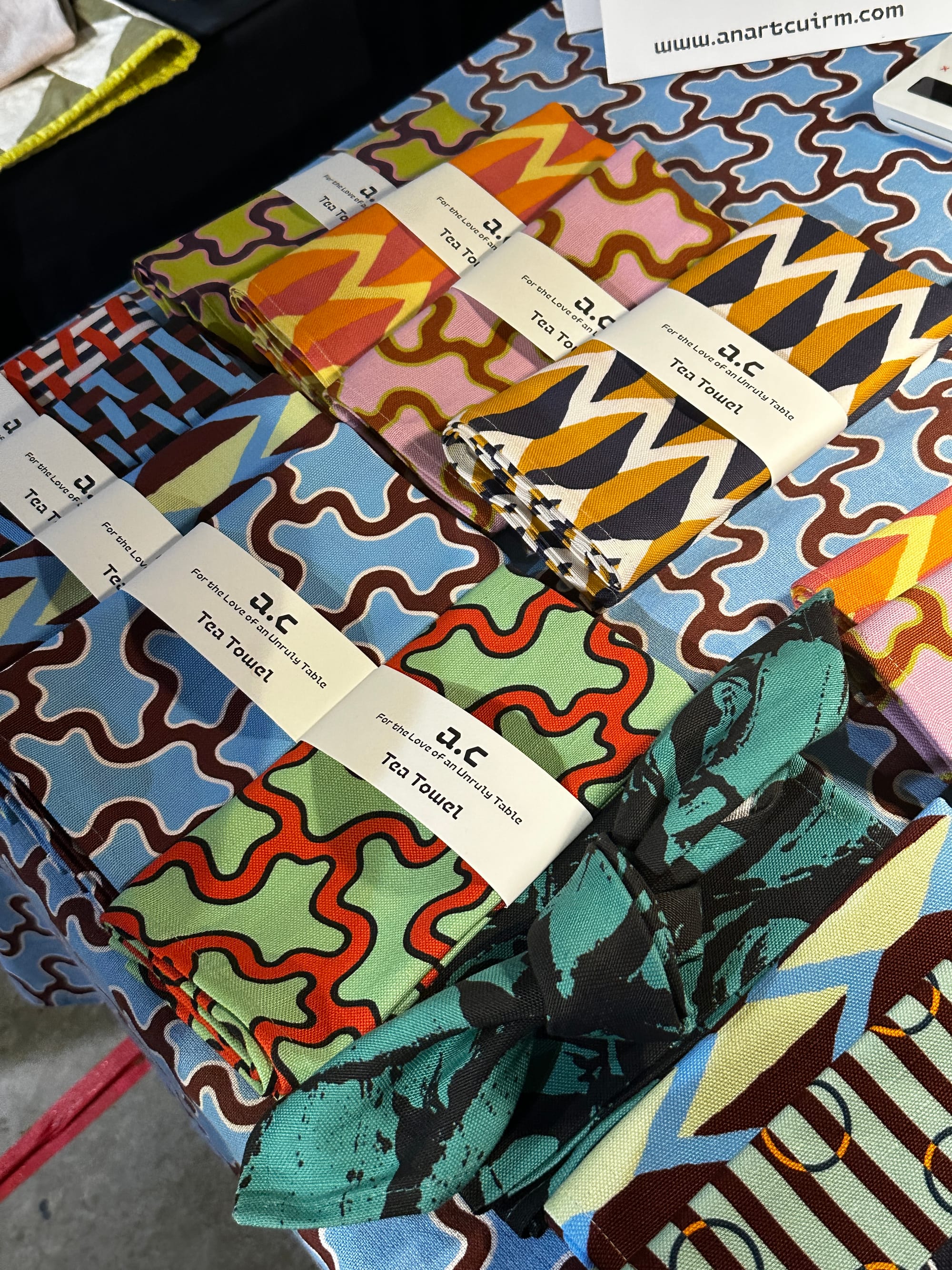
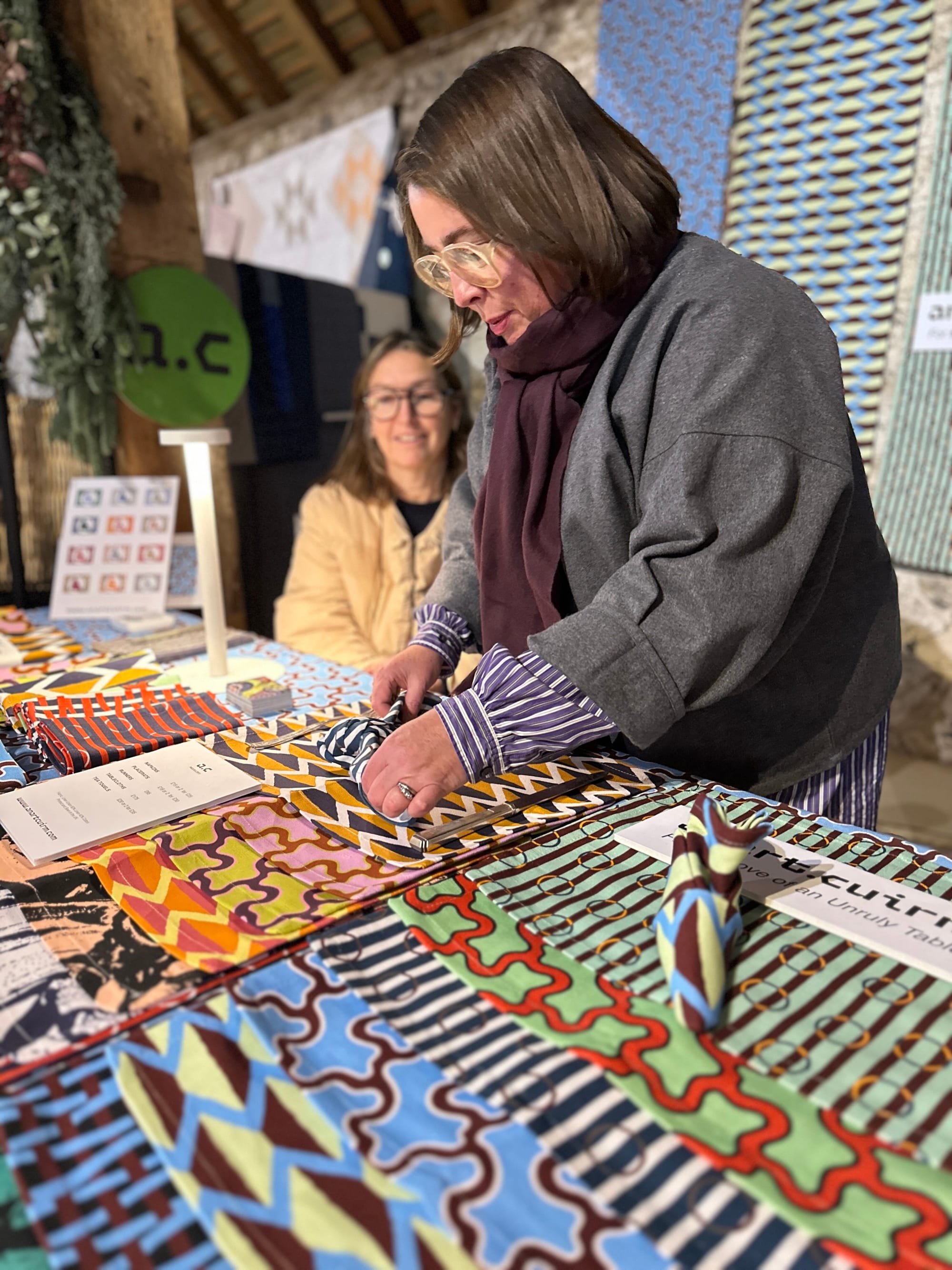
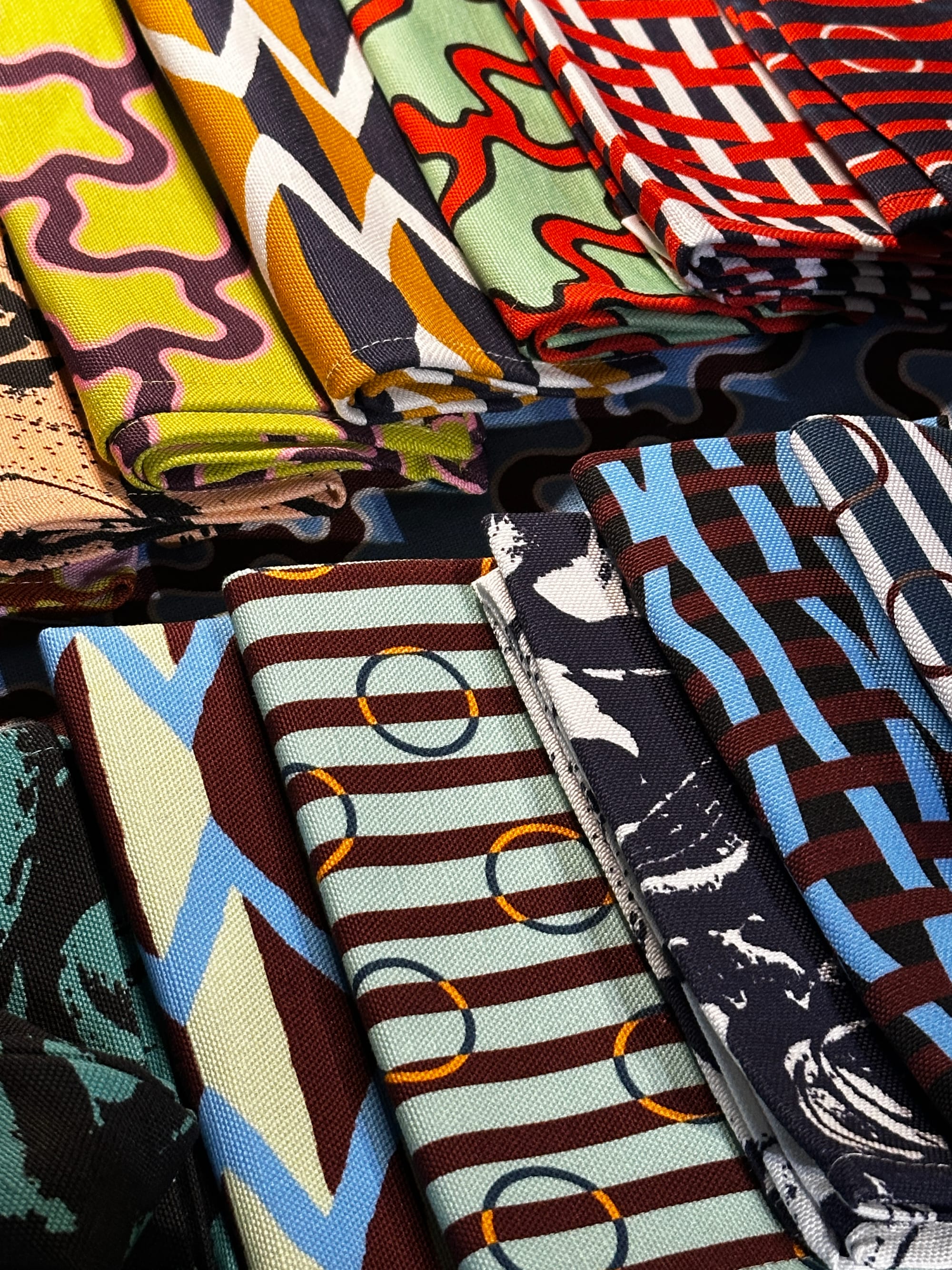
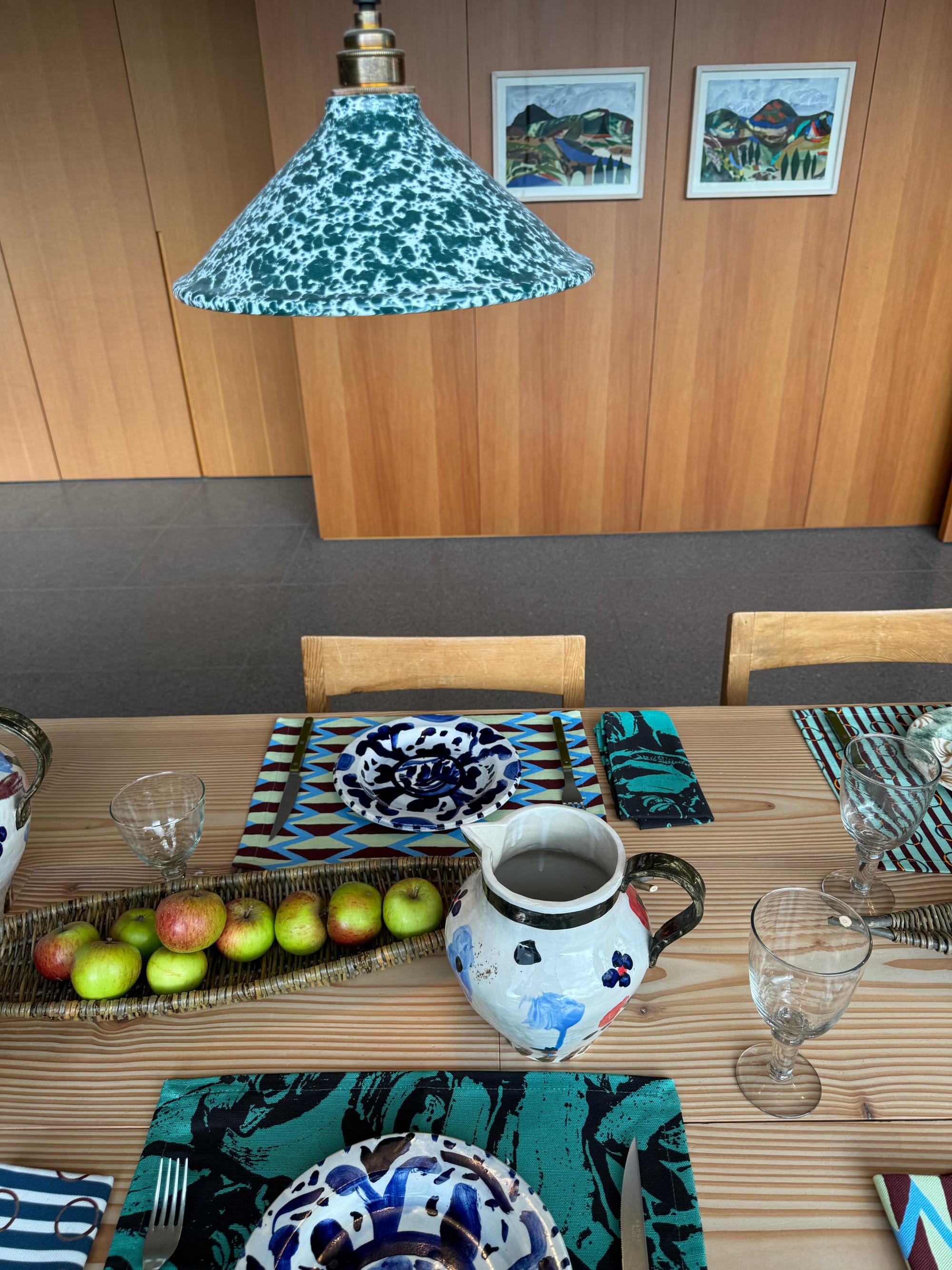
Photos by Fiona Coleman / Courtesy of Anart.Cuirm
“We felt that we were a good fit in the assortment [at Charleston], as well as being something a bit different and perhaps offering something more colorful. We appeal to anyone with a discerning, confident, and creative eye, a joy for color, pattern, and who loves an unruly table and is happy to live with less formality and more flair!”
Bound by their Scottish heritage and a love for bold, colorful design, Nancy Rohde and Sarah Shepherd named their table linen brand Anart.Cuirm; Anart is Scottish Gaelic for cloth and Cuirm is Scottish Gaelic for feast.
Nancy, a renowned fashion stylist with a keen eye for color and print, has collaborated with industry giants like Dries Van Noten. Sarah is a textile graduate of the Glasgow School of Art and lends her expertise in interior design, honed through years of consulting for top brands and agencies. Together, they've created a collection of napkins, placemats, runners, tablecloths, and tea towels that's both sophisticated and spirited. Inspired by everything from art exhibitions, to travel and flea market finds, these friends design their prints in-house. They use 60% linen and 40% cotton (Linen Union) composition made from Belgian yarn which is woven, printed, and sewn in the UK.
Beki Bright
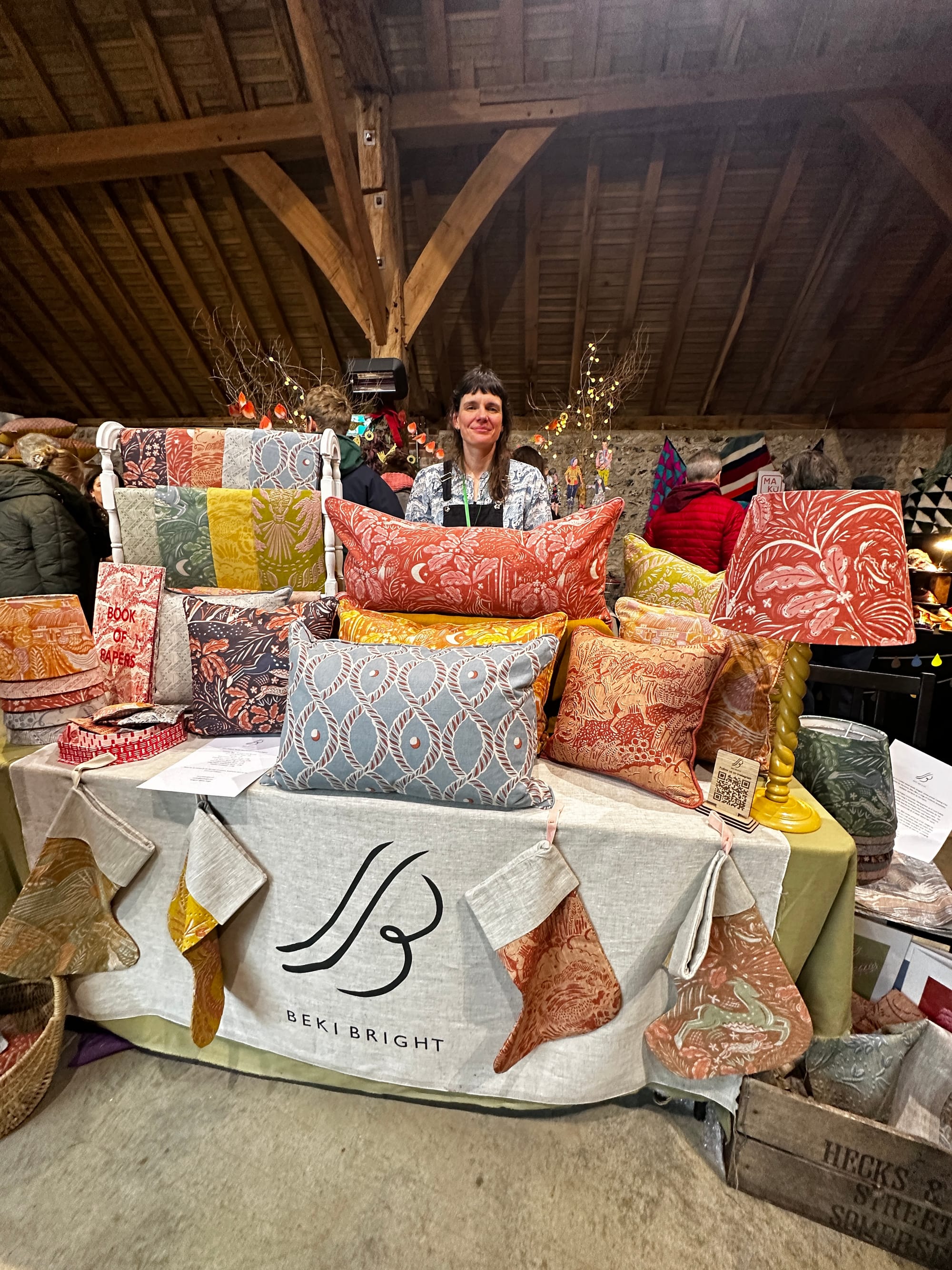
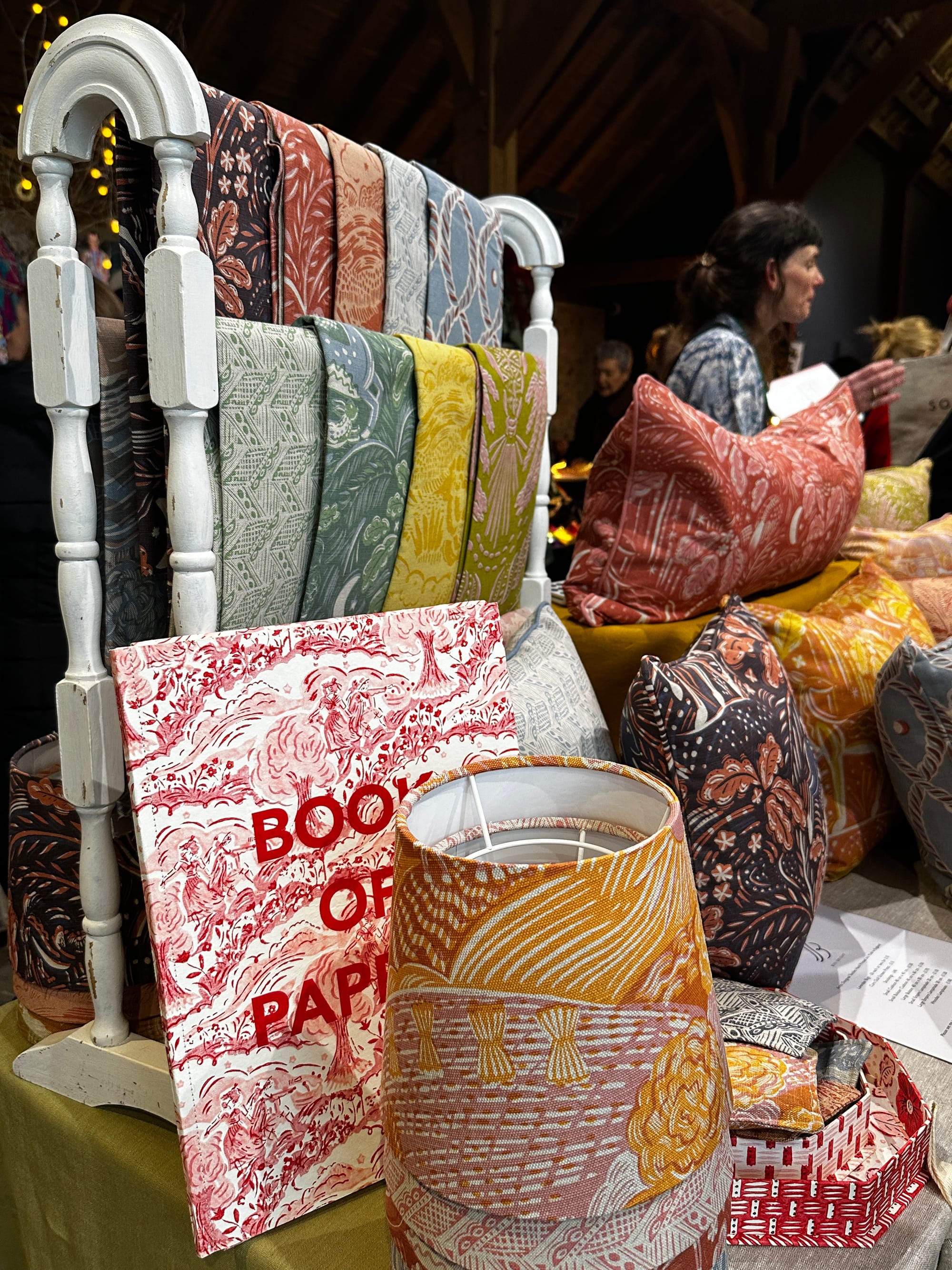
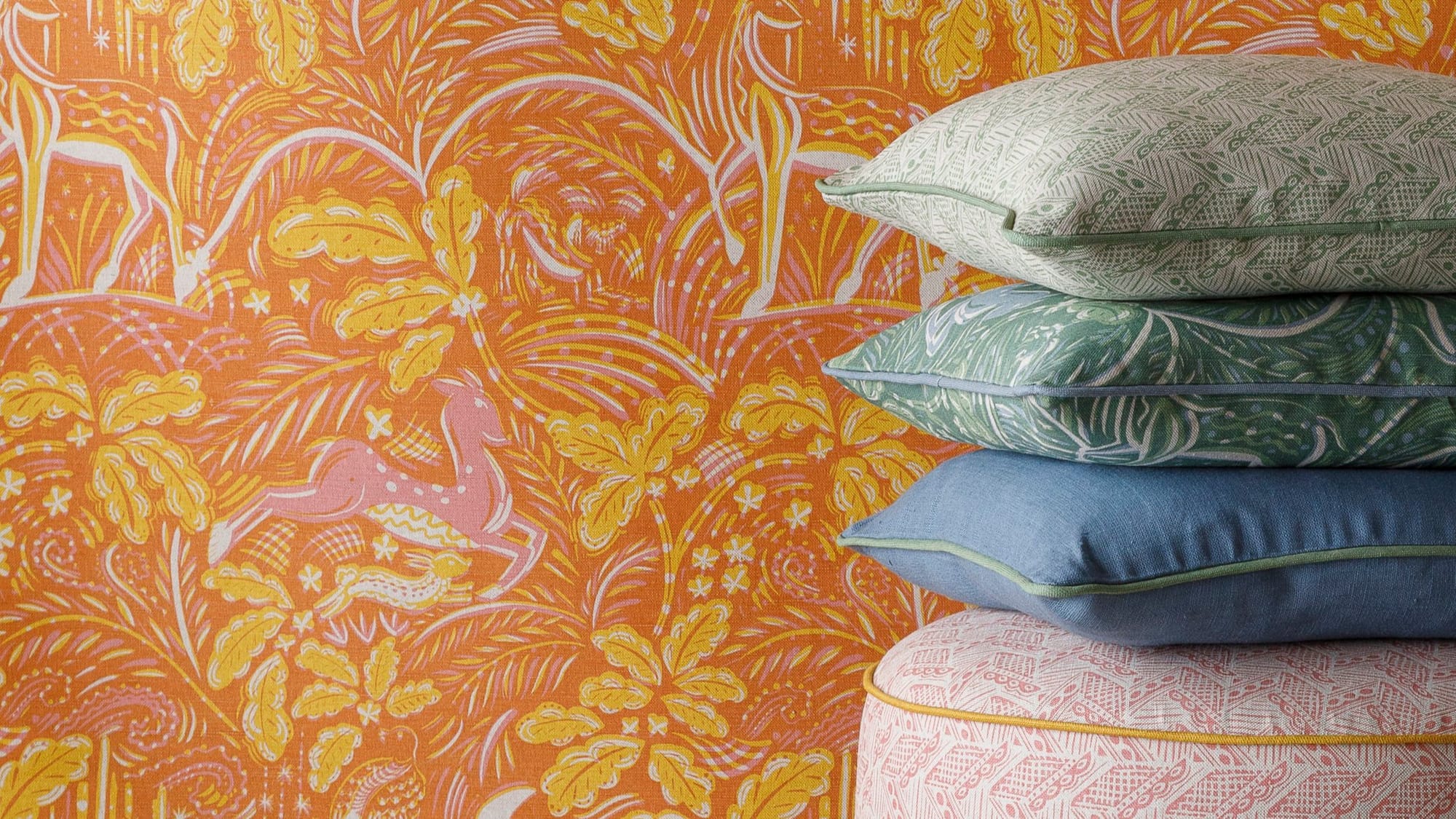
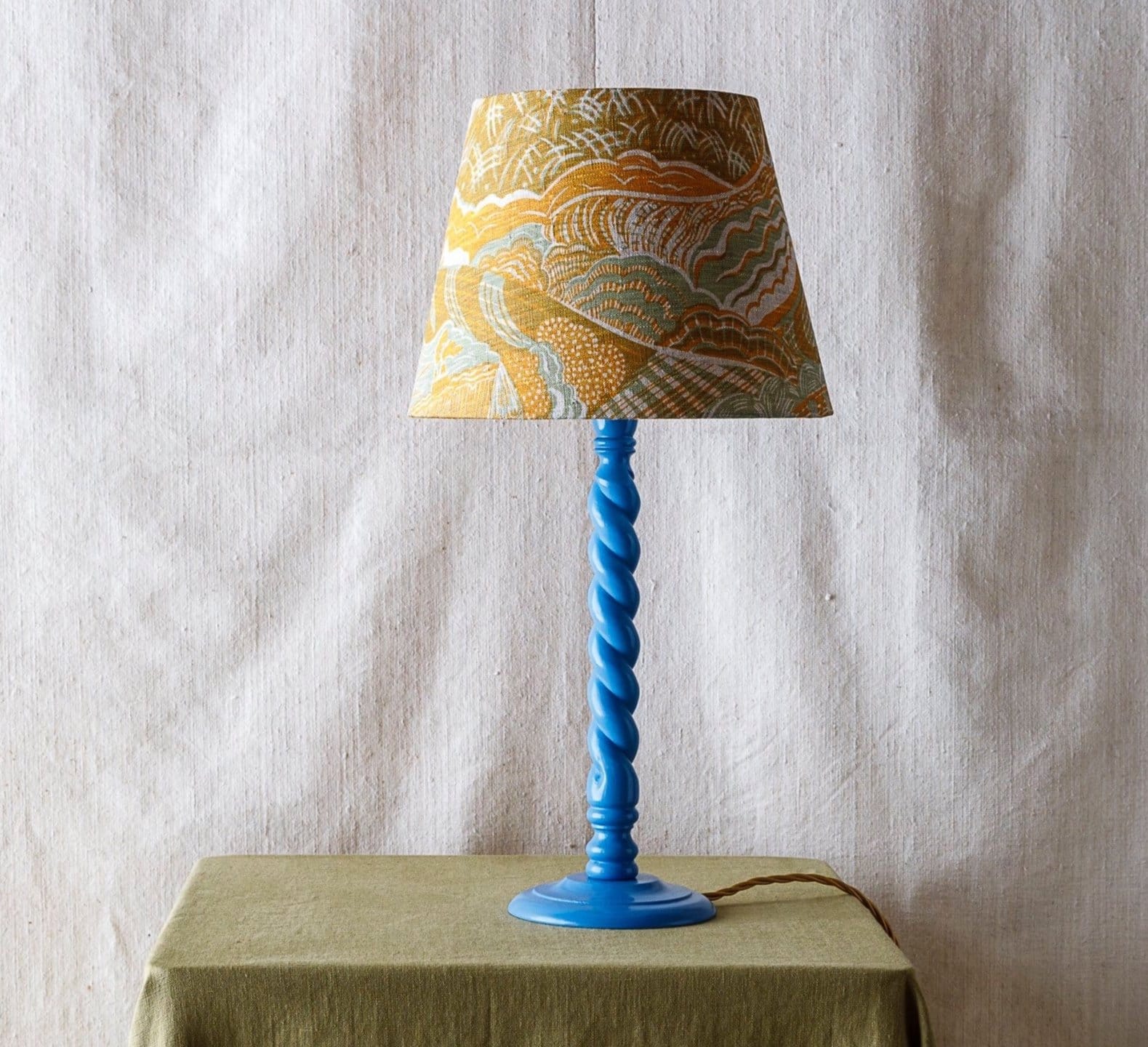
Photos by Fiona Coleman / Courtesy of Beki Bright
"My work is heavily influenced by the Bloomsbury group, especially Vanessa Bell and Duncan Grant. Many years ago I visited Charleston Farmhouse and was in total awe of the embodiment of functional art for everyday living. I wanted to take that same spirit of functional beauty when starting my business. To create a brand that concentrated on artist designed textiles. So exhibiting my collection at Charleston means a awful lot, as I feel it’s my creative spiritual home.”
Beki Bright, a London-based textile designer, brings the charm of the English countryside to life through her hand screen-printed creations. Her cushions, lampshades, wallpaper, and fabric by the meter are a love letter to rural England inspired by her upbringing in Suffolk. Bright's designs featuring sweeping landscapes, rolling hills, and folk motifs like corn dollies have a sense of place and nostalgia.
Producing all of her work in London, Beki screen prints each of her designs by hand on a UK-woven linen and cotton base cloth. For her, small production runs mean complete oversight over designs from concept to completion. Her designs are made-to-order to allow for minimal waste with any offcuts being repurposed into samples or packaging.
Gillian Flint
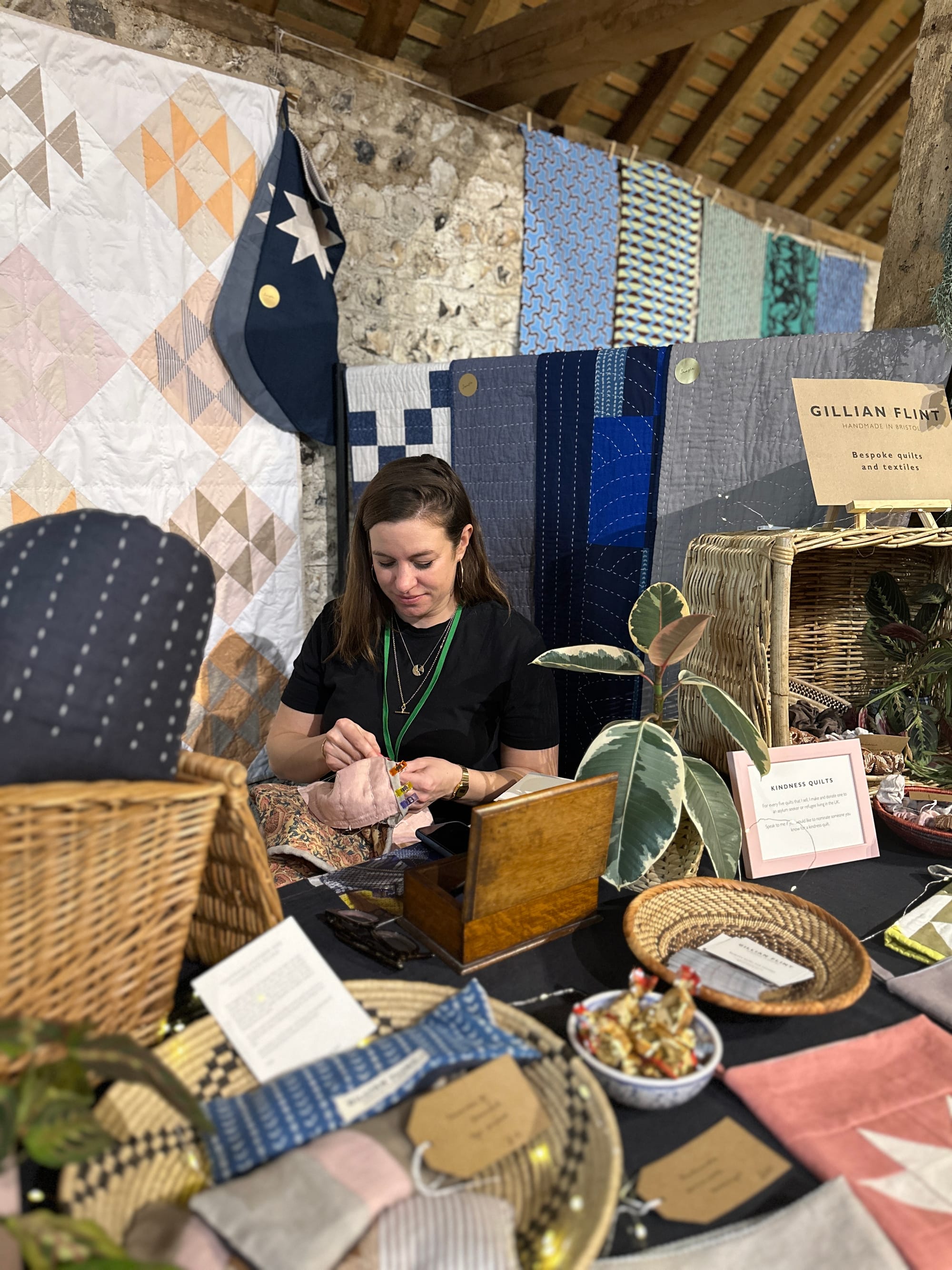
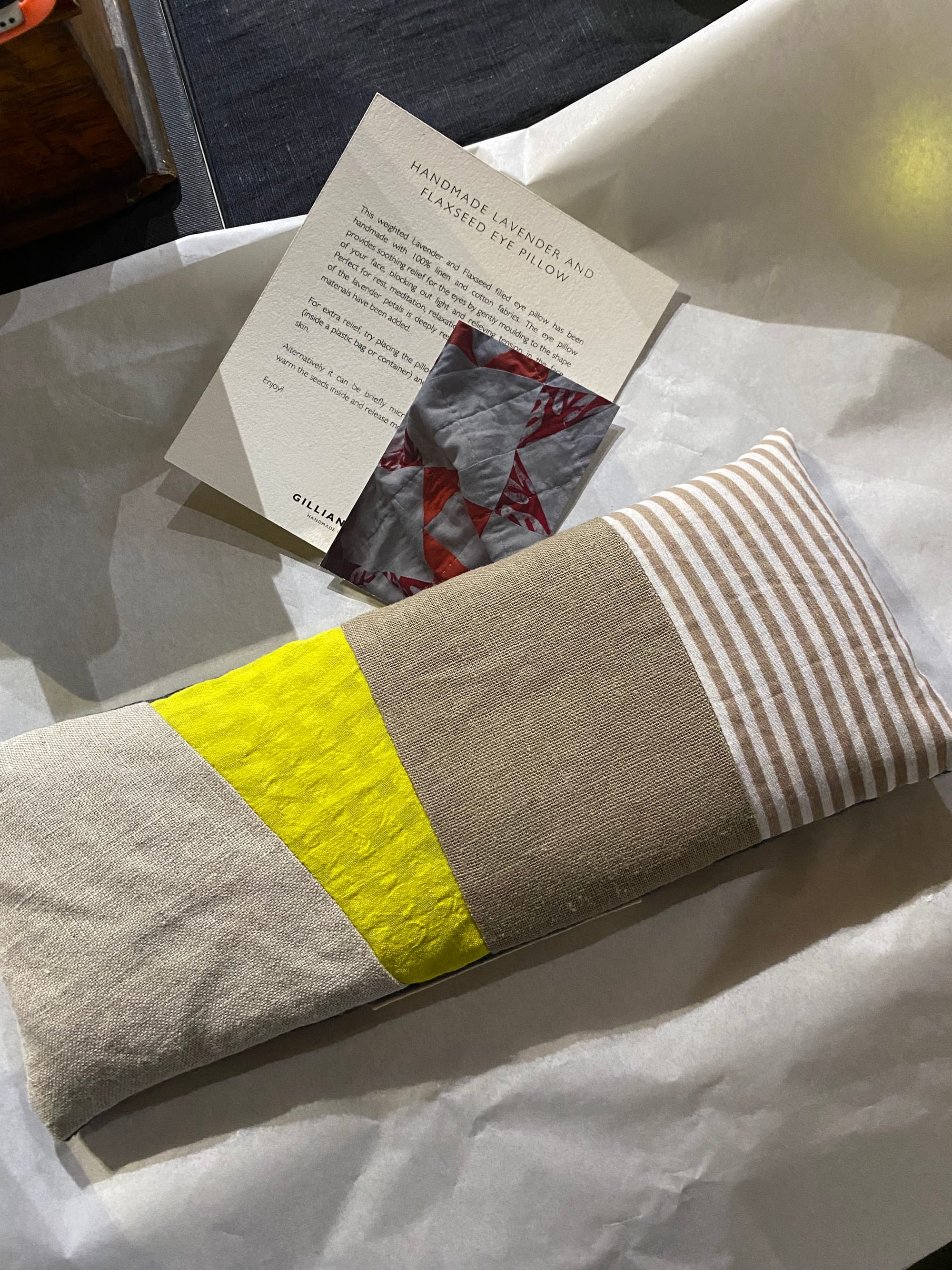
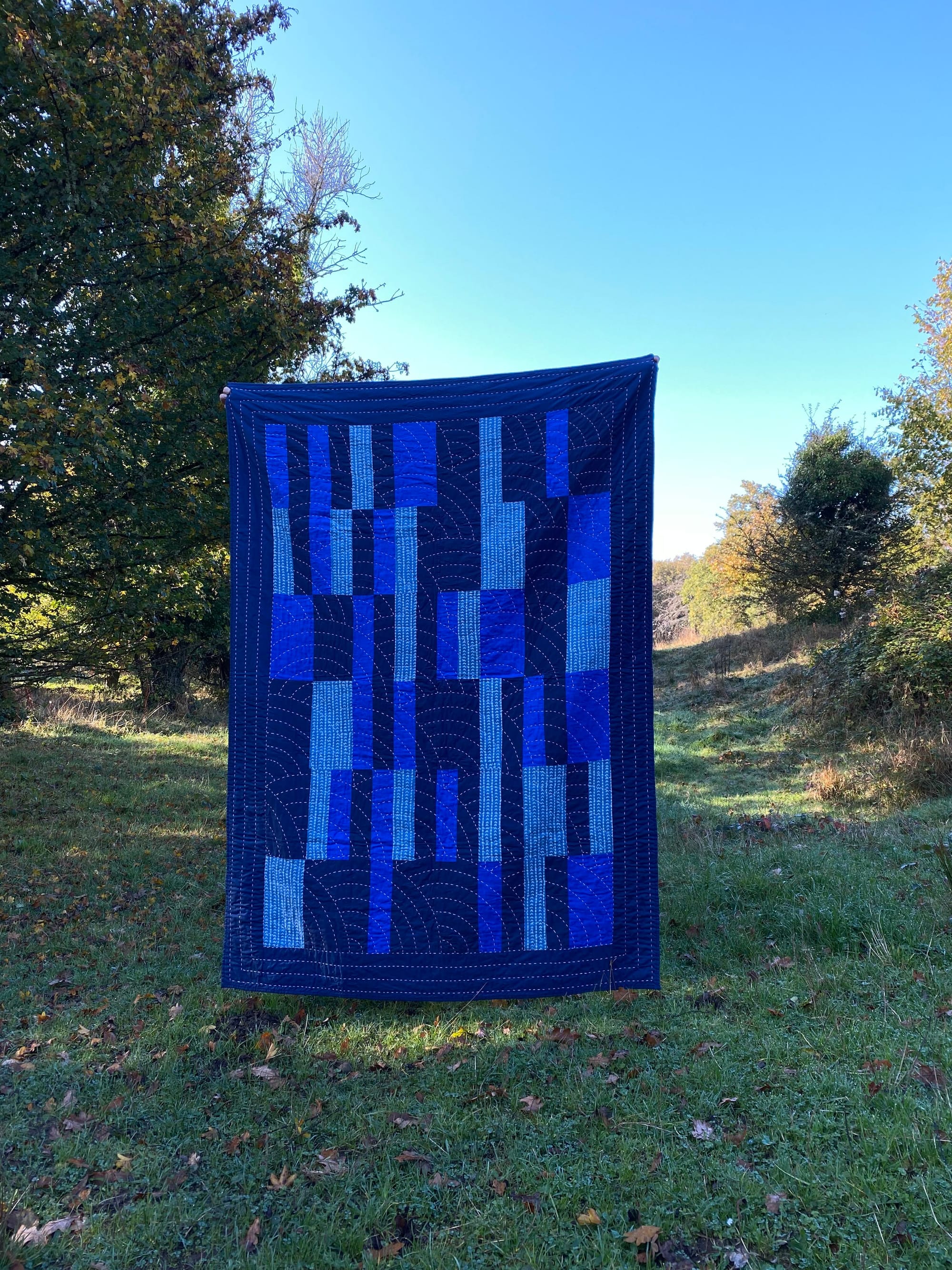
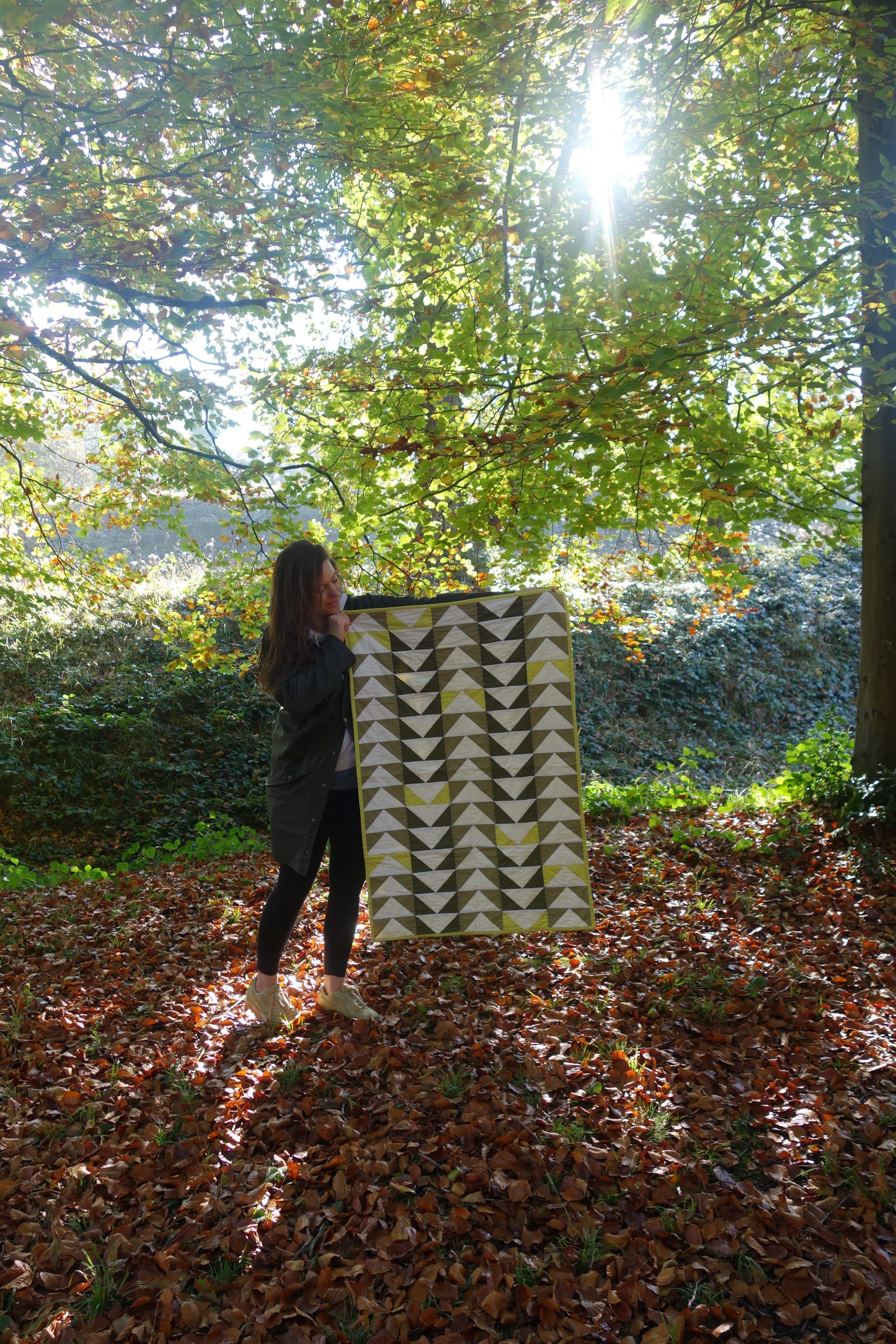
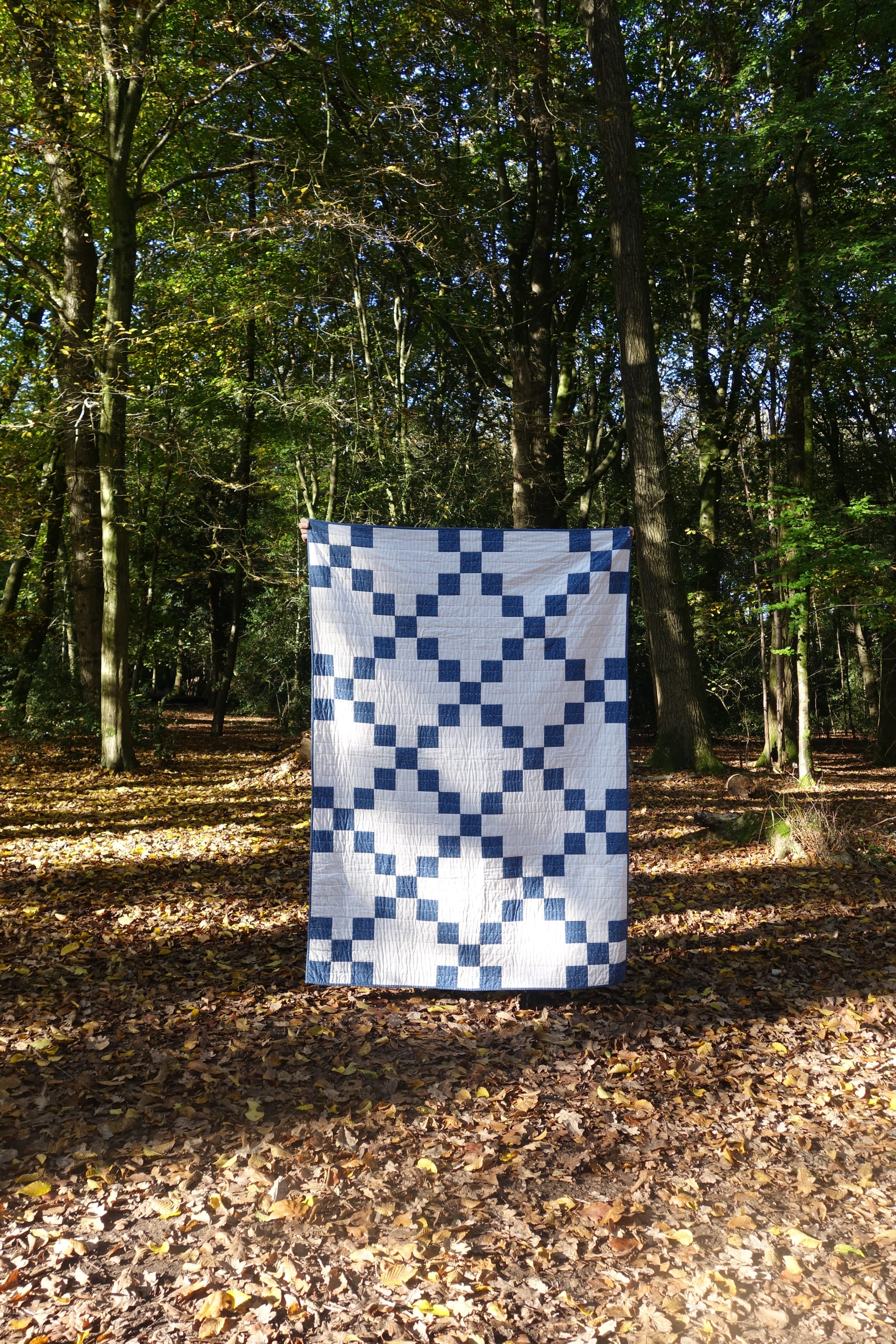
Photos by Fiona Coleman / Courtesy of Gillian Flint
“Looking around the house at the end of the [fair] weekend, I was reminded again of how my aesthetic and design choices have been heavily influenced by Charleston, even in the years before I knew about the house and its occupants - as the trickle-down influence in the work of artists and makers I admire is so widespread. It was such a privilege to be there.”
Quilt-maker Gillian Flint has a background in social anthropology and law. She spent years working with refugees and asylum-seekers and she brings a deep sense of empathy and social consciousness to her craft. "It's a deeply therapeutic practice for me," she shares, "and has helped me through some difficult times."
Her Kindness Quilts initiative weaves together her past and present; For every five quilts Gillian sells, she gifts one to a refugee or asylum seeker in the UK. "I really believe in the power of handmade gifts," she explains. These quilts, crafted with love and warmth, offer a tangible symbol of welcome and acceptance. Gillian's dedication to sustainability is equally inspiring. She embraces a zero-waste approach, repurposing every scrap of fabric and prioritizing natural materials from ethical suppliers. The Scrunchies and Lavender and Flaxseed Eye Pillows for sale at Charleston were made from quilting offcuts. She uses vintage clothes and old, sentimental materials in her quilts, always preferring to re-use rather than buy new. Whe she does buy fabric, she only works with suppliers that have credentials for 100% natural cotton and linen.
Shiv Textiles
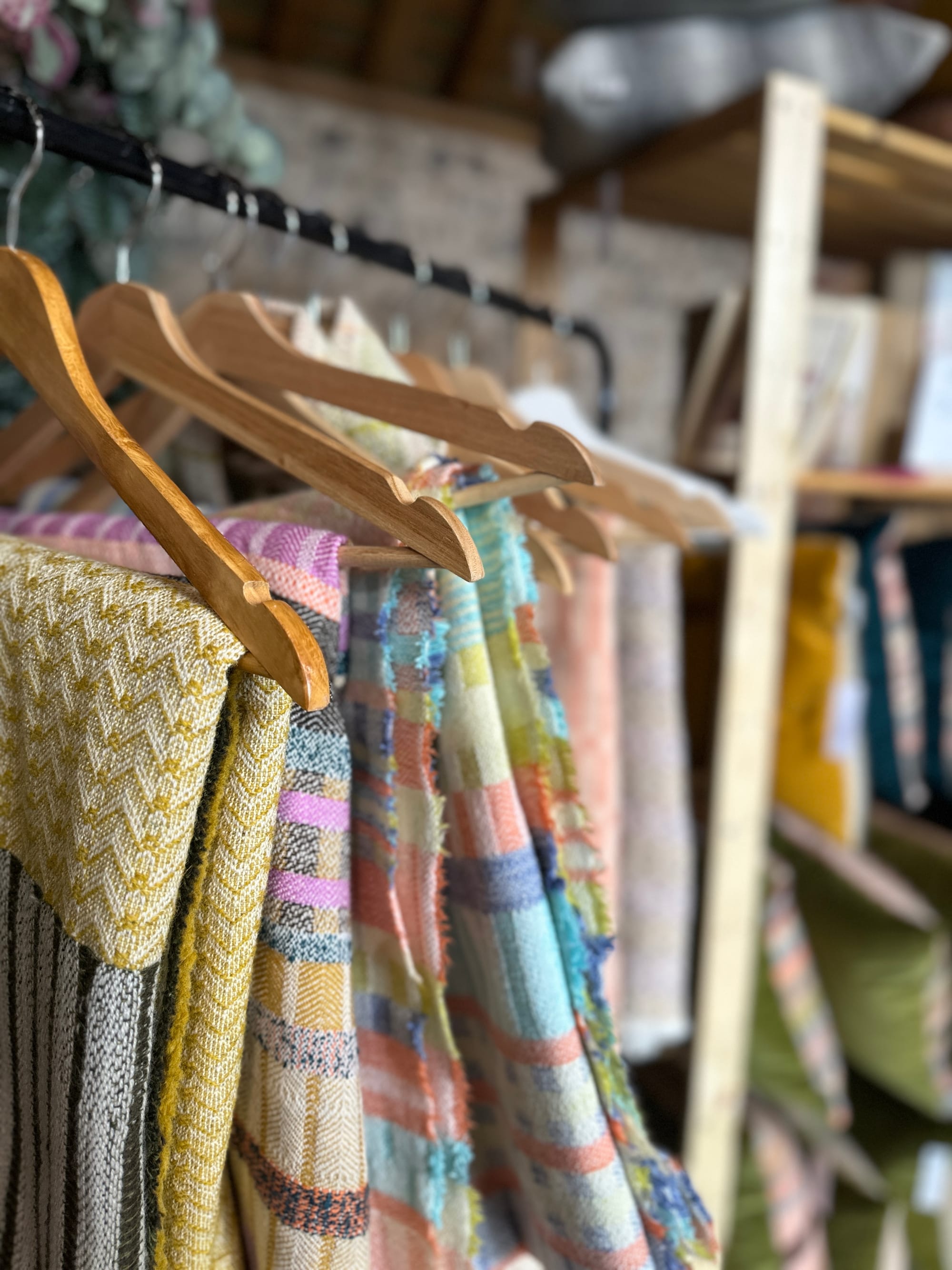
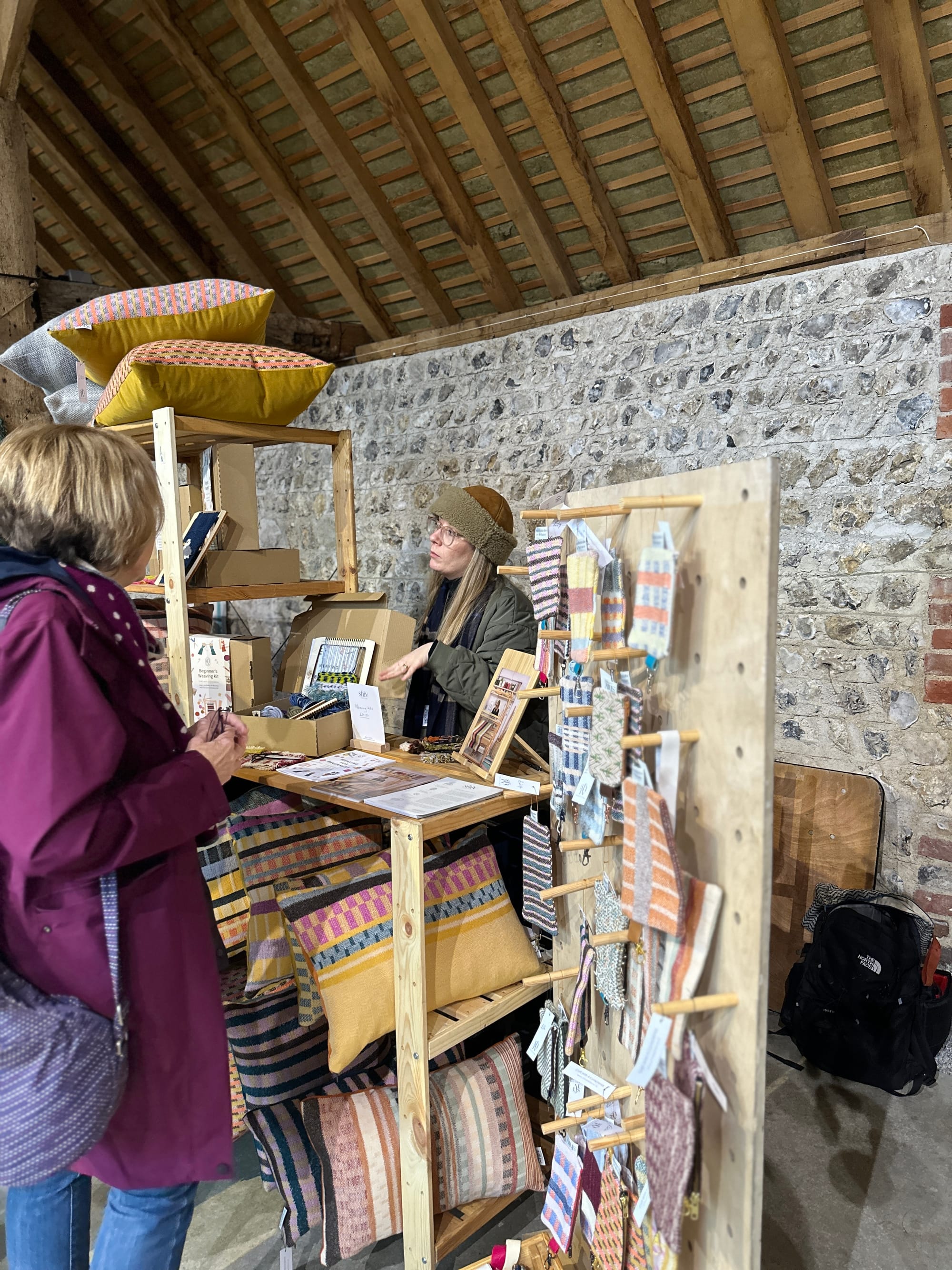
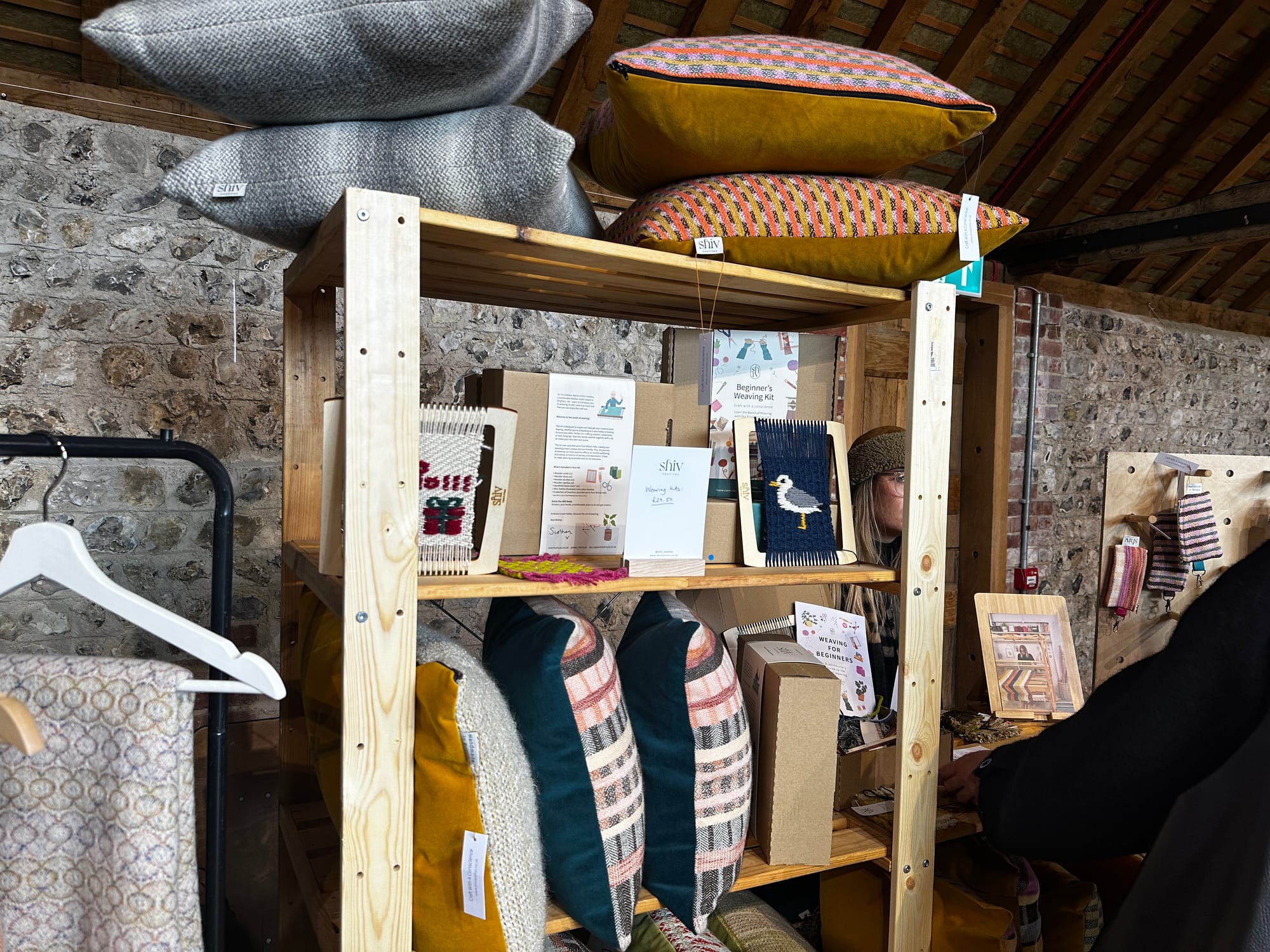
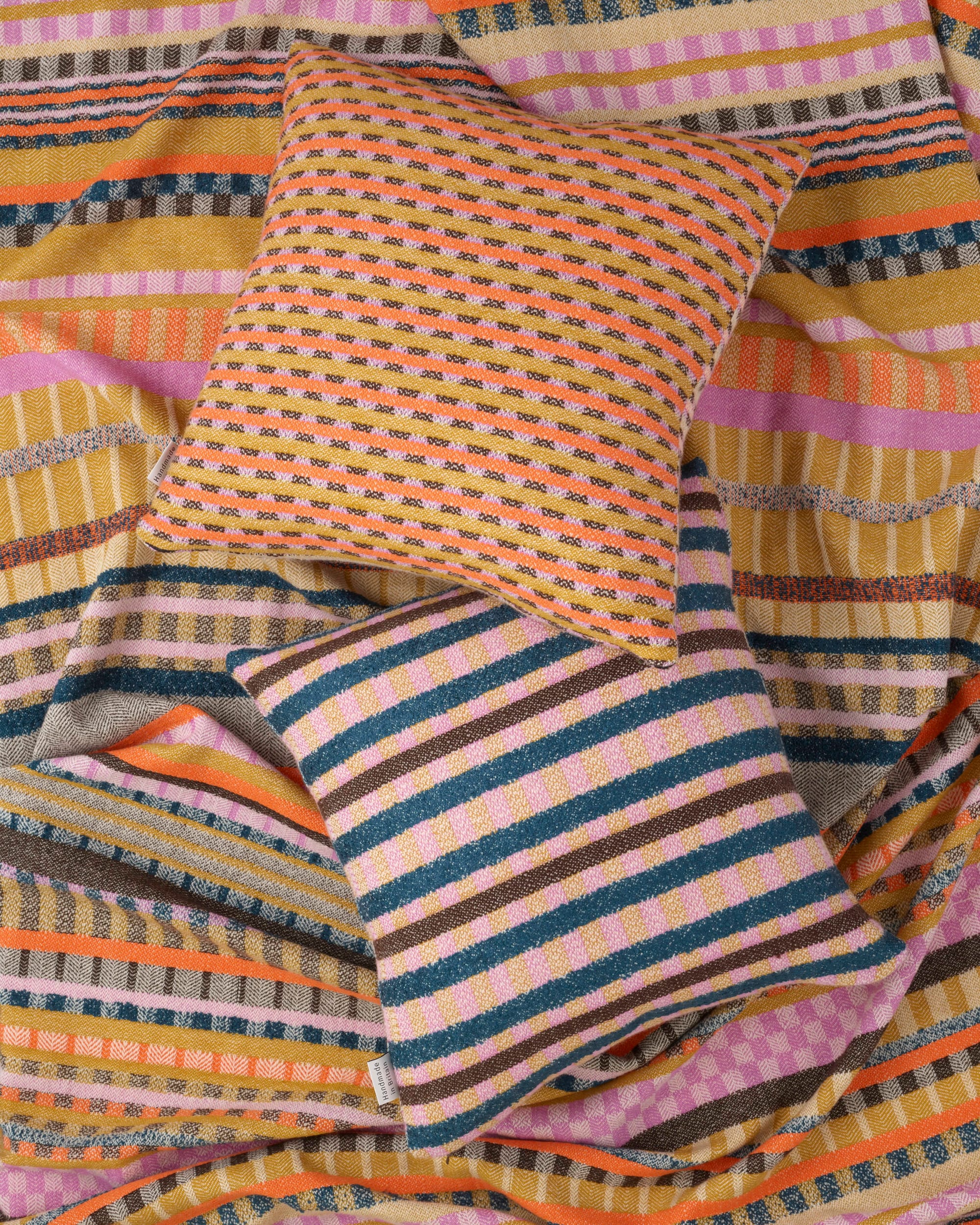
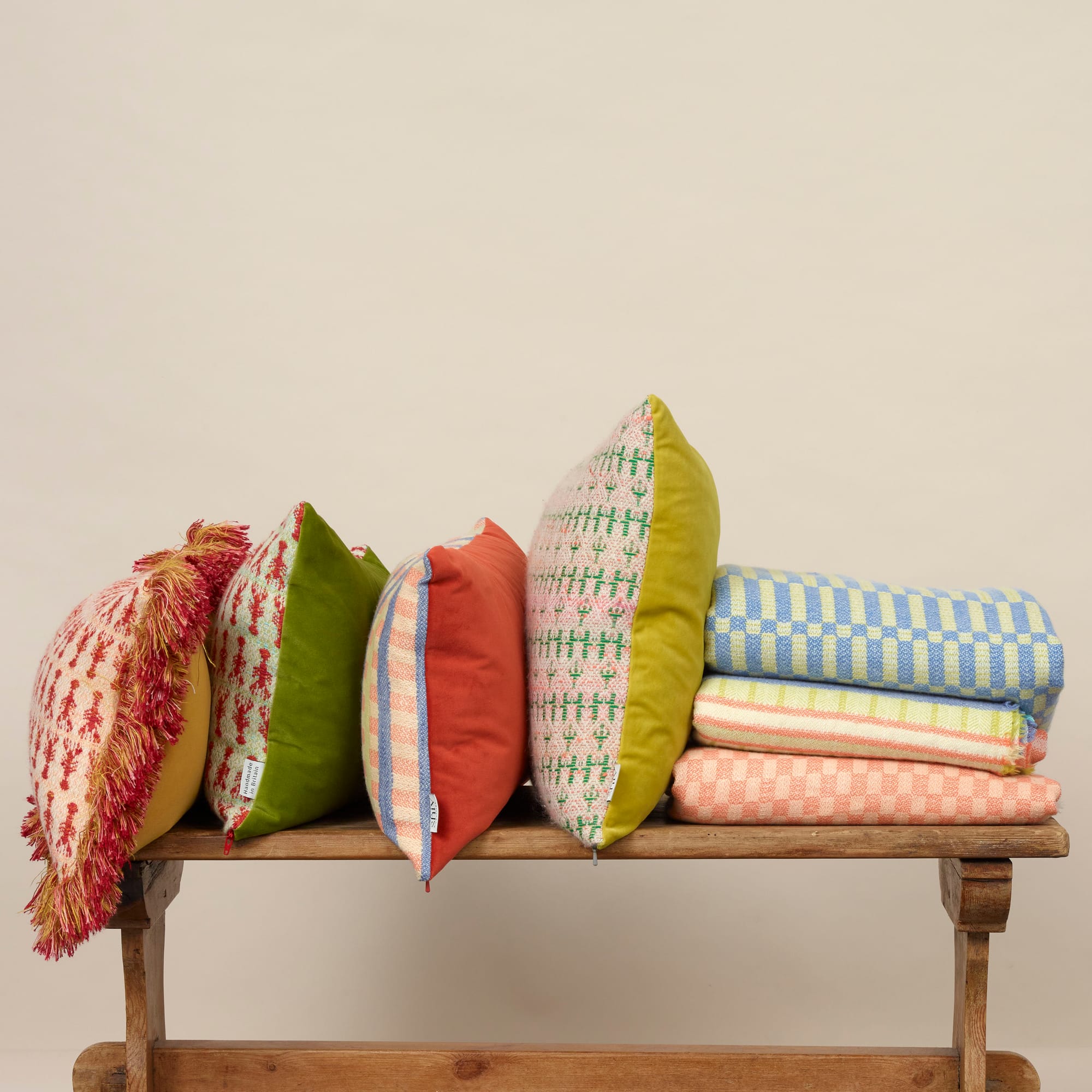
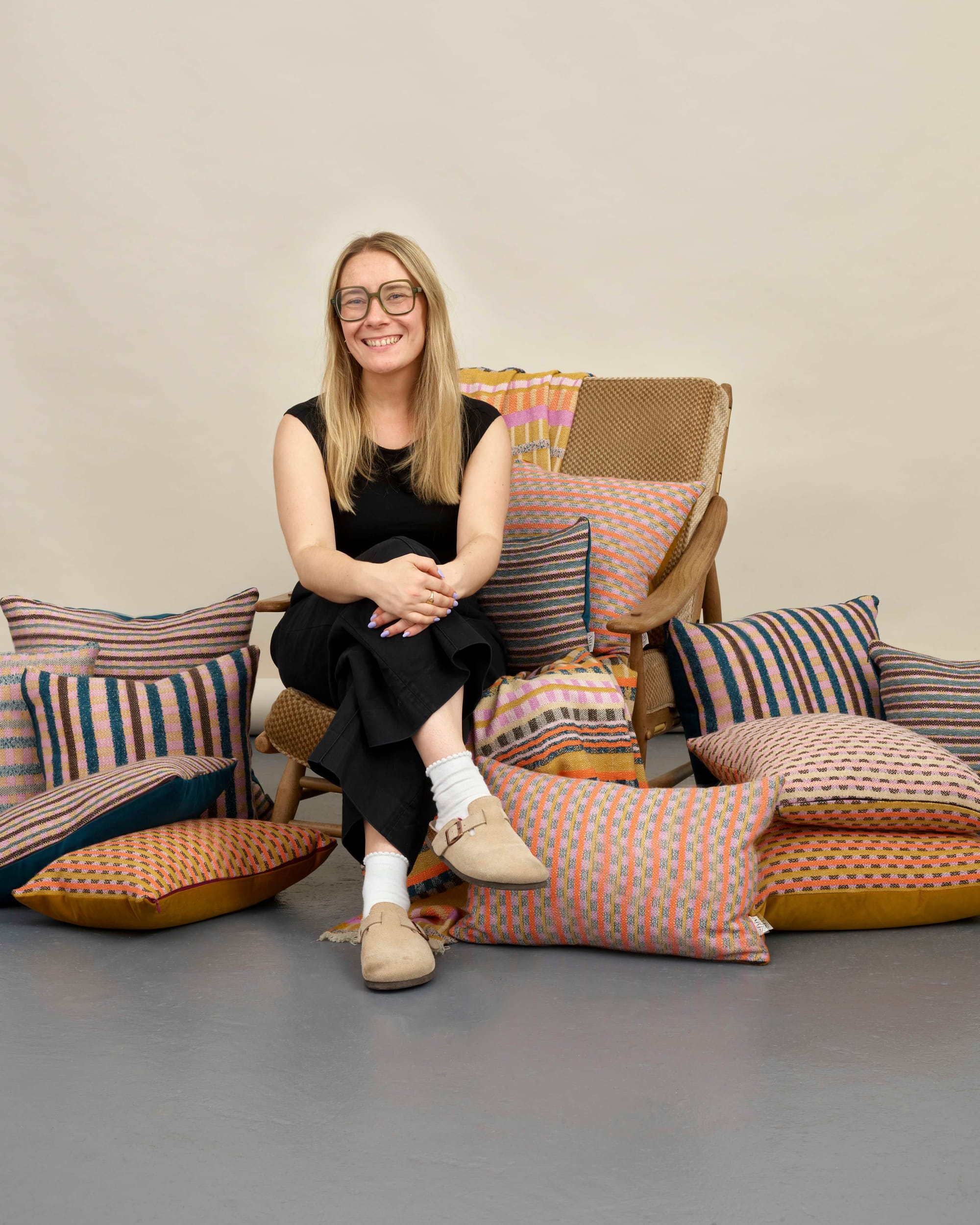
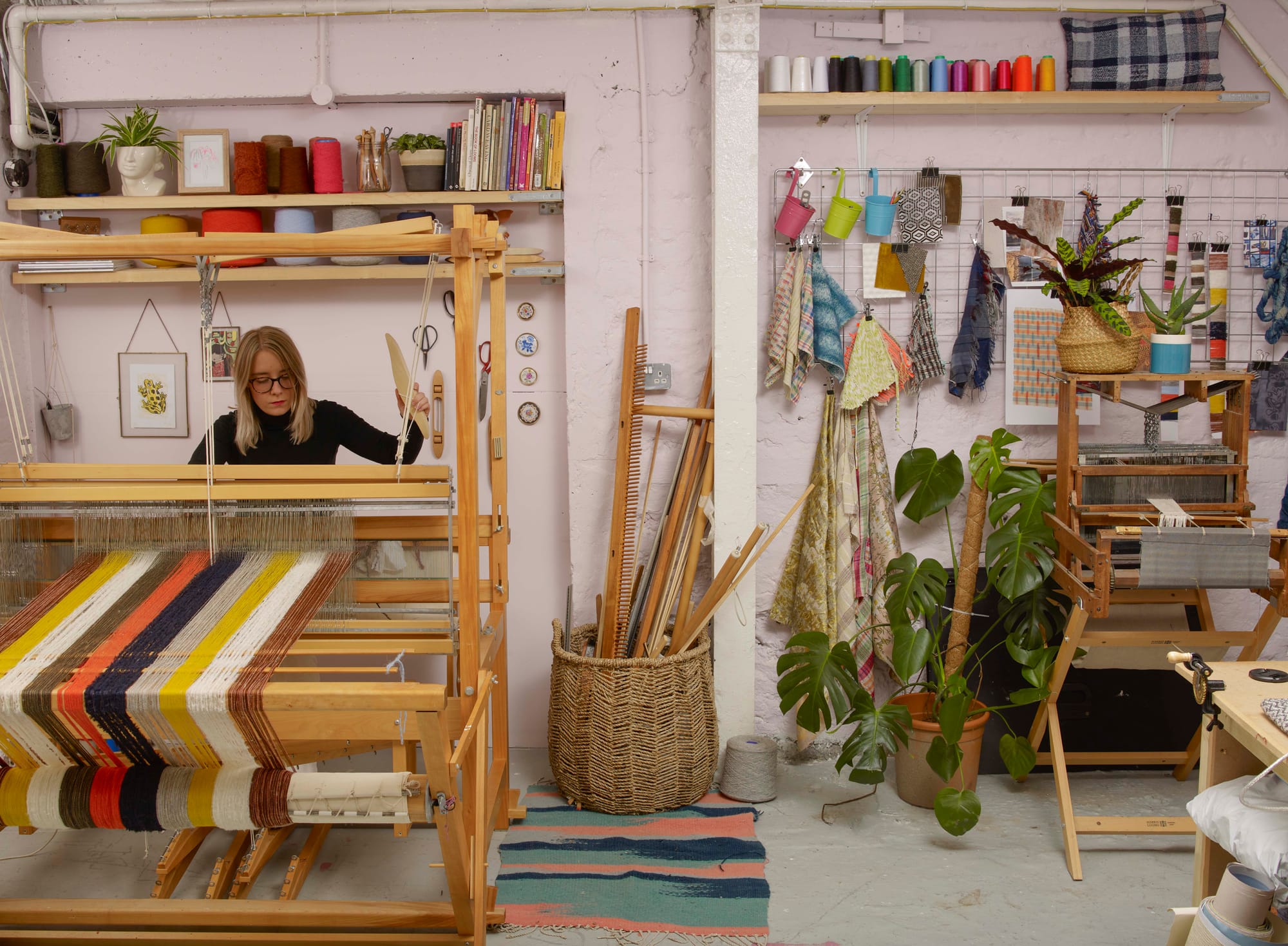
Photos by Fiona Coleman / Courtesy of Shiv Textiles
Running a small business can sometimes feel isolating, so events like this are invaluable. They offer the perfect opportunity to connect with like-minded makers and meet customers who really appreciate the craftsmanship and sustainability behind every product I create in my textiles studio. I’m so grateful to be part of this vibrant community where creativity and sustainability are truly celebrated.
Shiv Textiles is an independent weaving studio in Brighton, England founded by Siobhan Martin. Since the brand's inception in 2017, this one-woman business has saved over 1,644 kilograms (3,624 lbs) of industrial waste from landfills, breathing new life into discarded deadstock yarn. These rescued threads are woven into homewares, lifestyle accessories, and weaving kits.
Siobhan (Shiv) has also worked with recycled PET filament made in cooperation with REFLOW to produce with quality plastic materials—either bio-based or sourced from recycling—and the duo is working to consider all elements of the process from an eco standpoint. Shiv's commitment to sustainability also extends to technology in manufacturing that allows for zero-waste production and even failed prints are shredded into new material. The brand's products are made-to-order which means there isn’t overstock, further reducing products' carbon footprint.
Tamasyn Gambell
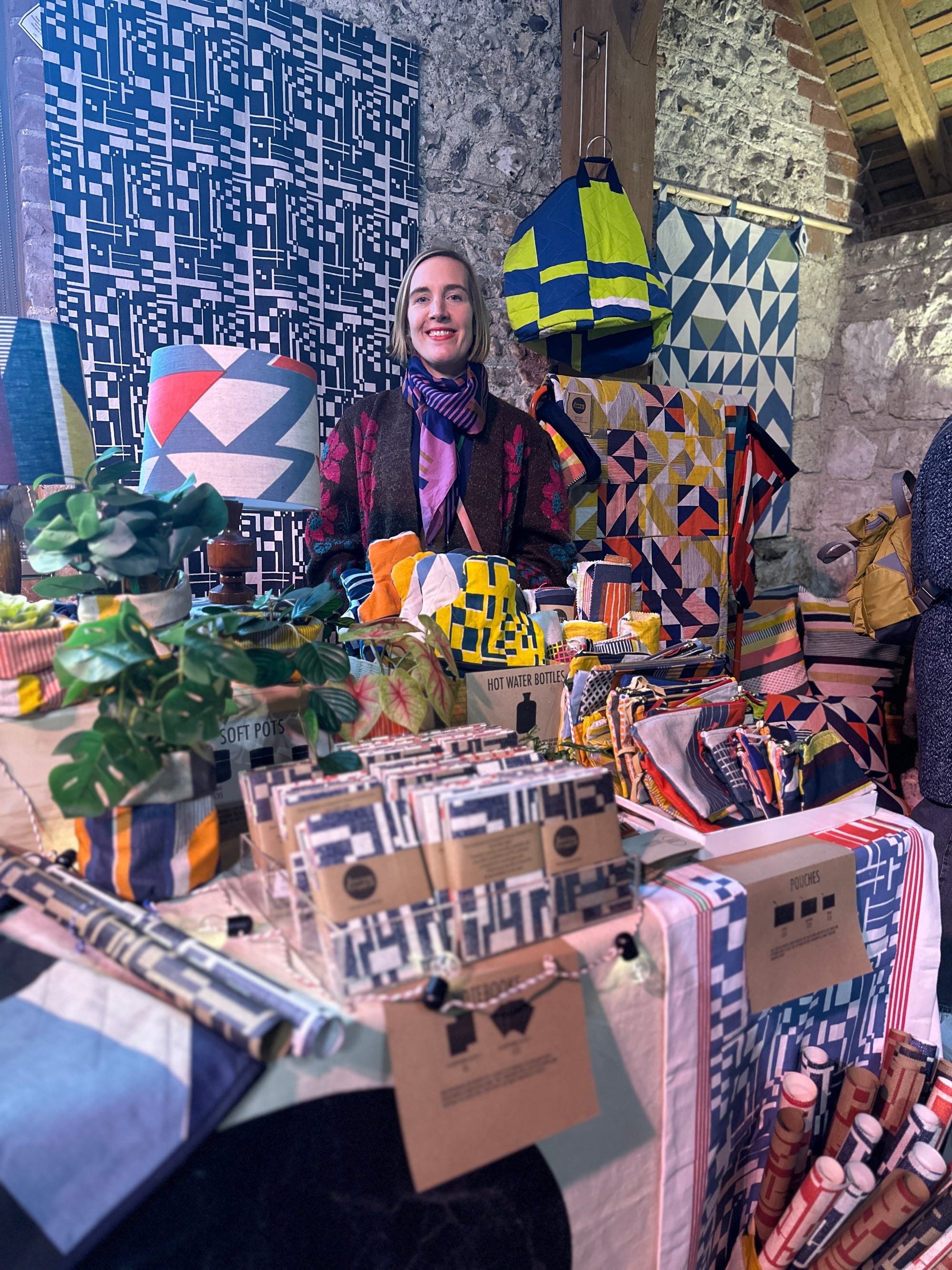
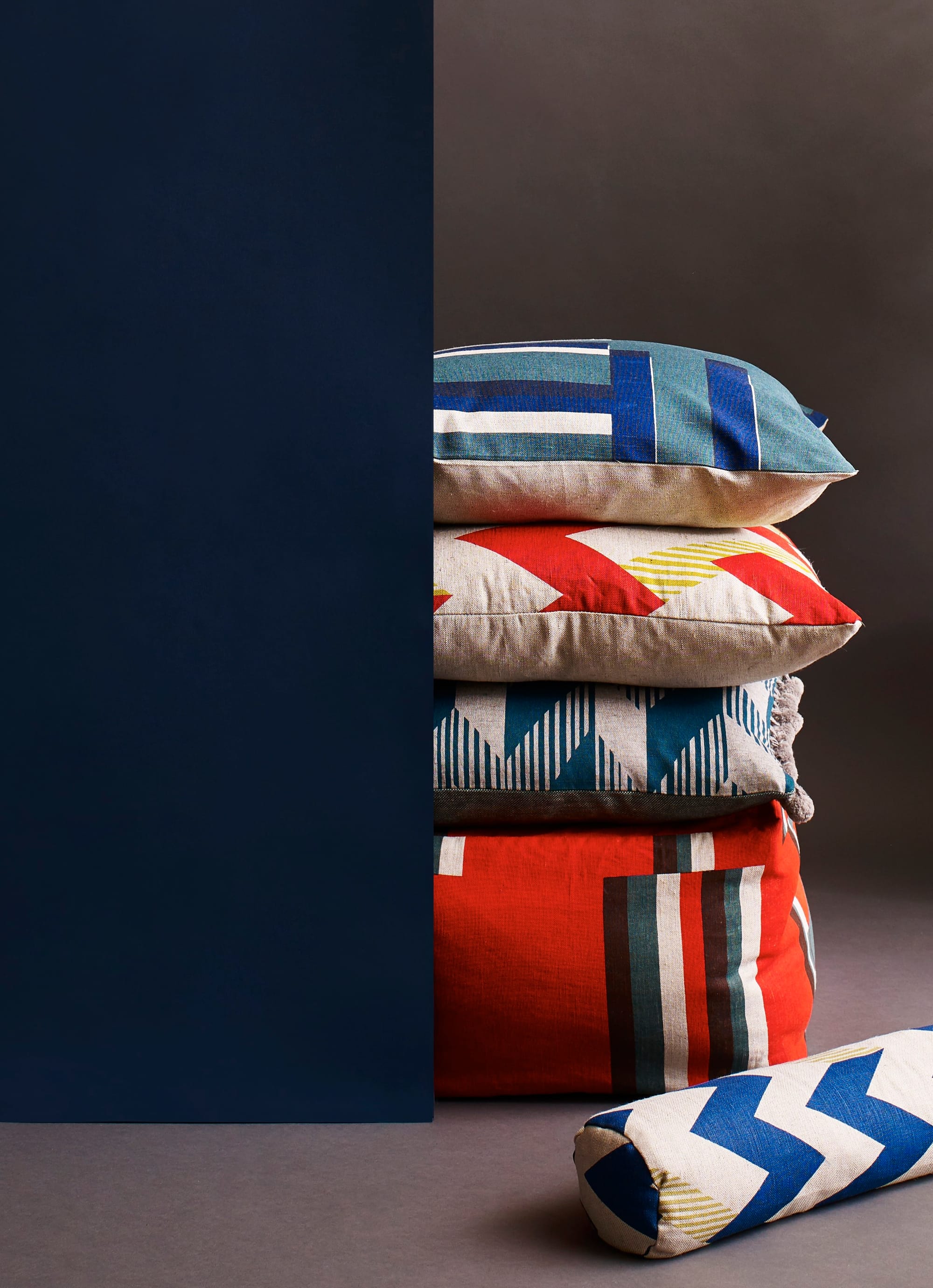
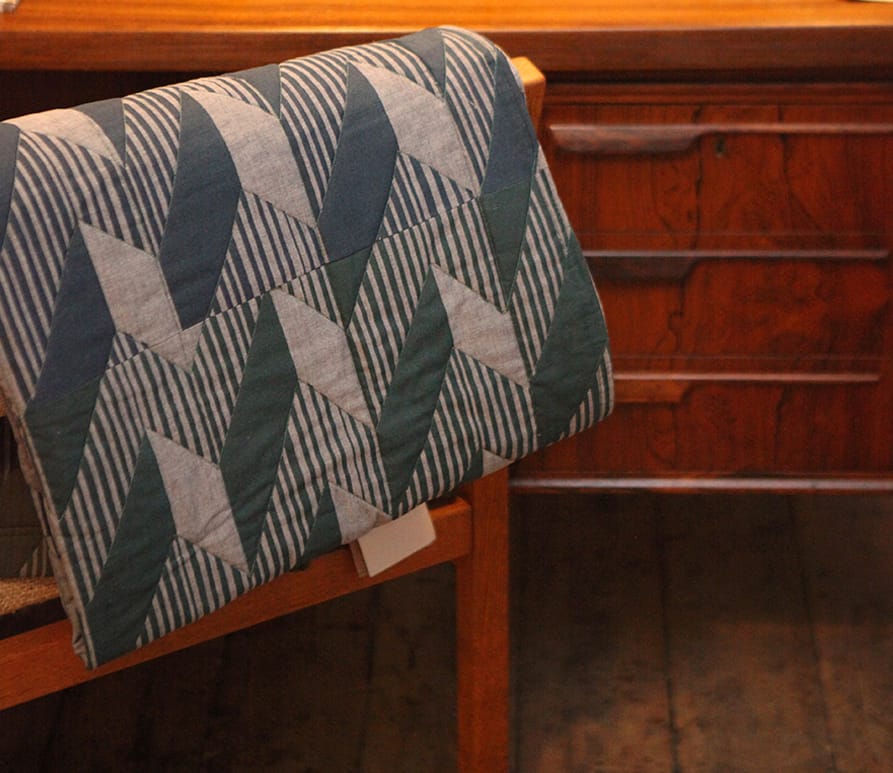
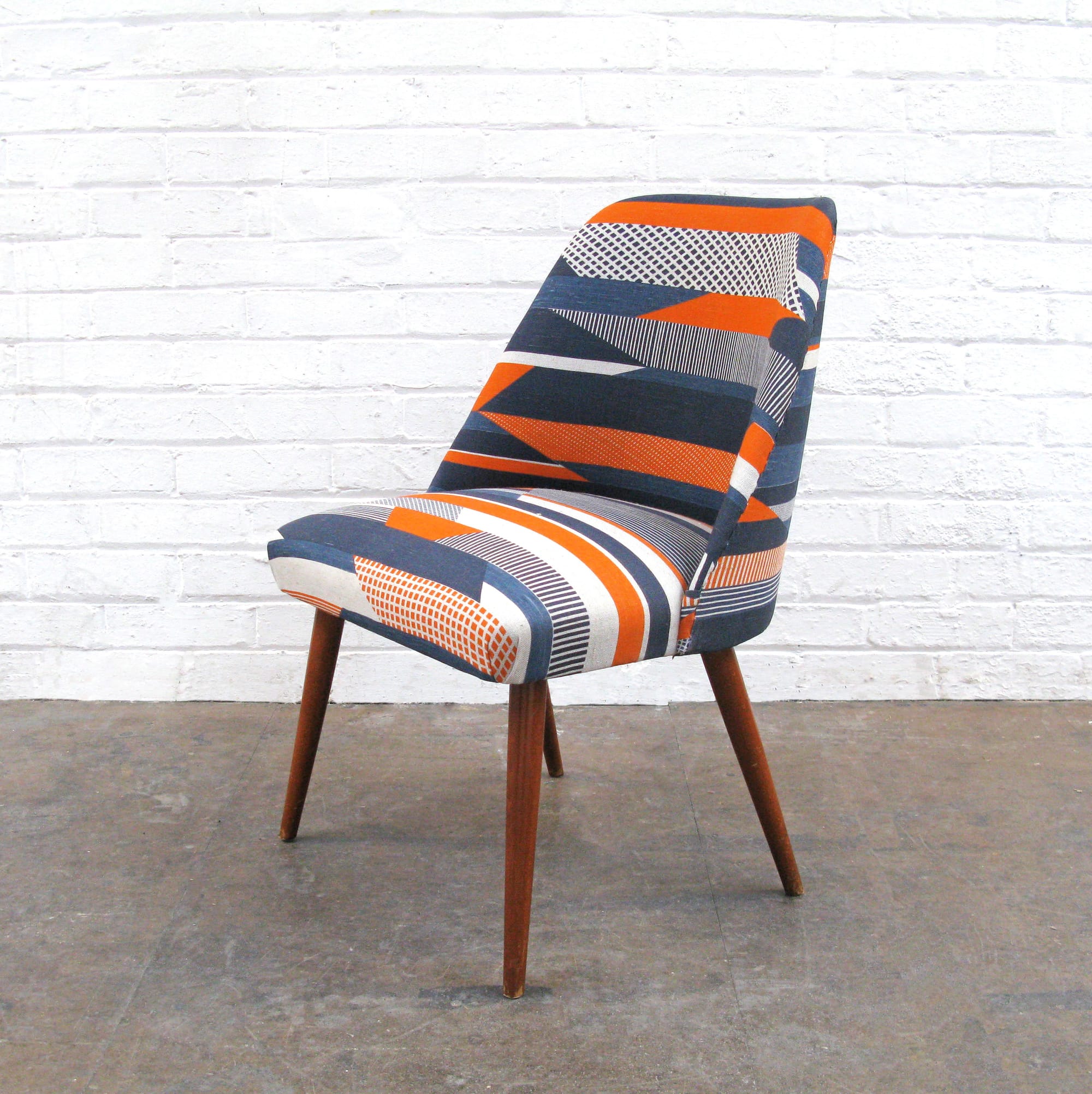
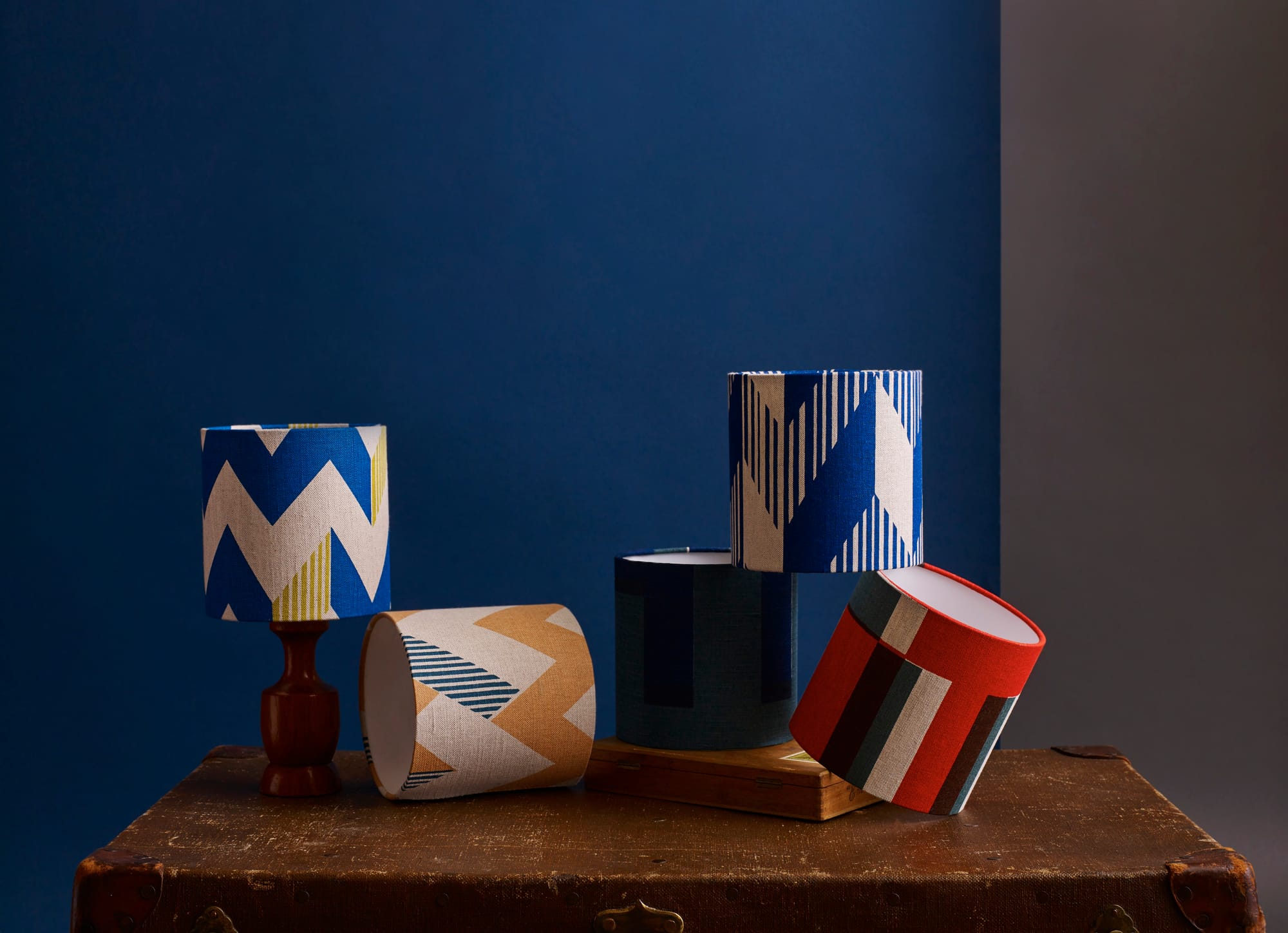
Photos by Fiona Coleman / Courtesy of Tamasyn Gambell
I chose to exhibit at Charleston as its such a wonderful location and I am very inspired by the interior of the house and the gardens. I'd heard from many other makers that it was a really well-curated fair and that the audience valued craft. It was lovely to be exhibiting with such a high calibre of makers and we were very well looked after by the organizers.
Designer Tamasyn Gambell trained in printed textiles at Chelsea College of Art and the Royal College, experimenting with both fashion and interior print design. She has worked in Paris for high-end companies such as Louis Vuitton and Sonia Rykiel, trend agencies Nelli Rodi, Promostyle, and WGSN, and at H&M as a womenswear print designer. While working in both the high-end and commercial fashion, Tamasyn felt frustrated with the amount of waste produced by brands and their lack of innovation. She feels that today's fast-paced, mass-produced fashion industry leaves little time for reflection, so she decided to leave the industry and set-up a company that would produce luxurious – yet responsible – designs in the most environmentally and socially-conscious way.
Today, Tamasyn's East London studio prides itself on creating high quality, timeless designs that are eco-friendly and made in the UK. Tamasyn carefully sources fabrics from the UK and Europe and she screen-prints her designs by hand in her studio using non-toxic water-based pigments. Larger print runs are screen-printed by a small family-run factory in Europe and her orders are deliberately small in quantity to minimize waste and surplus goods. She uses any offcuts for small-scale products, salable fabric bundles, and patchwork quilts. She also makes use of the backing cloths on her printing table to create oversized shopping bags.

